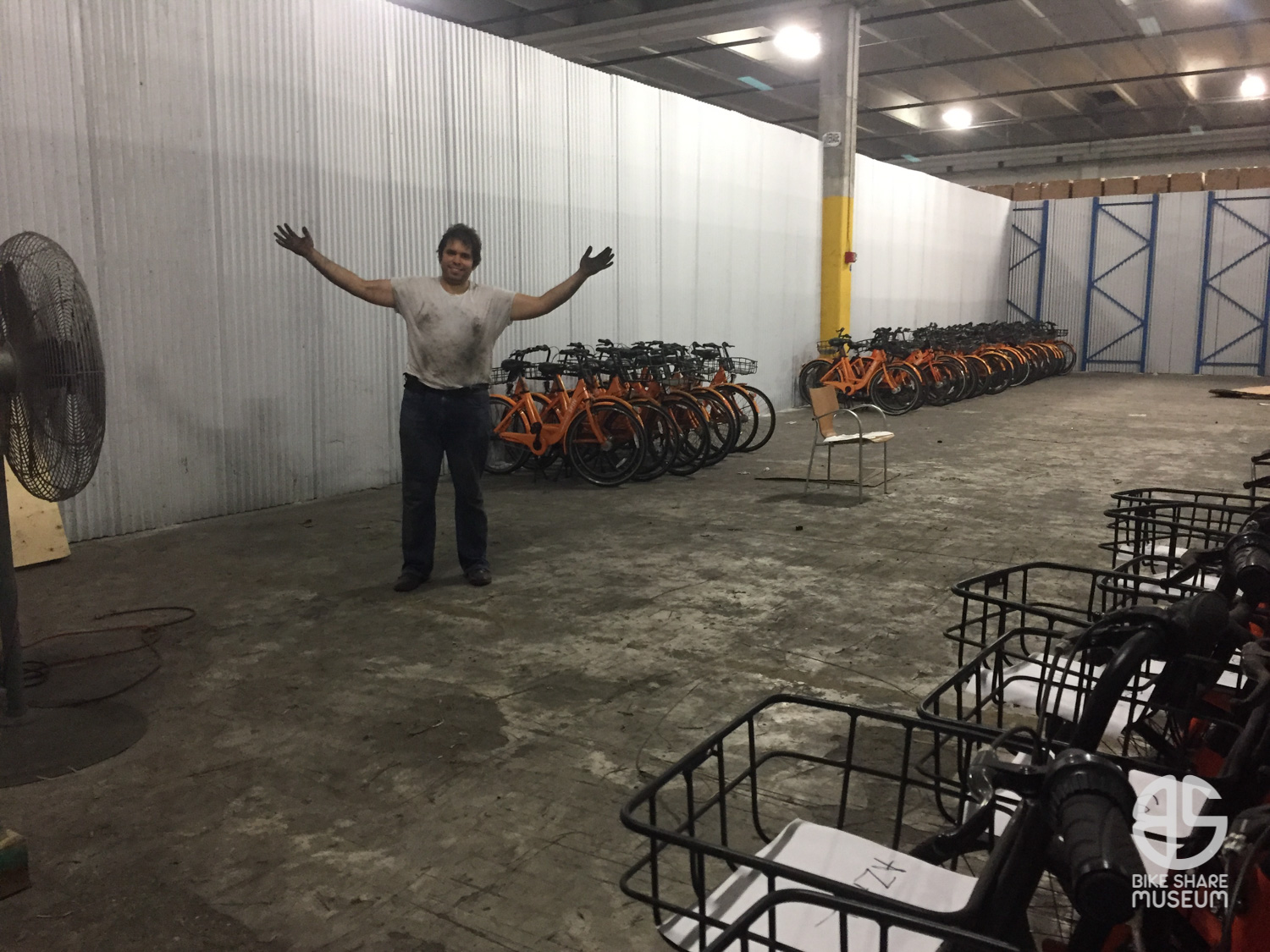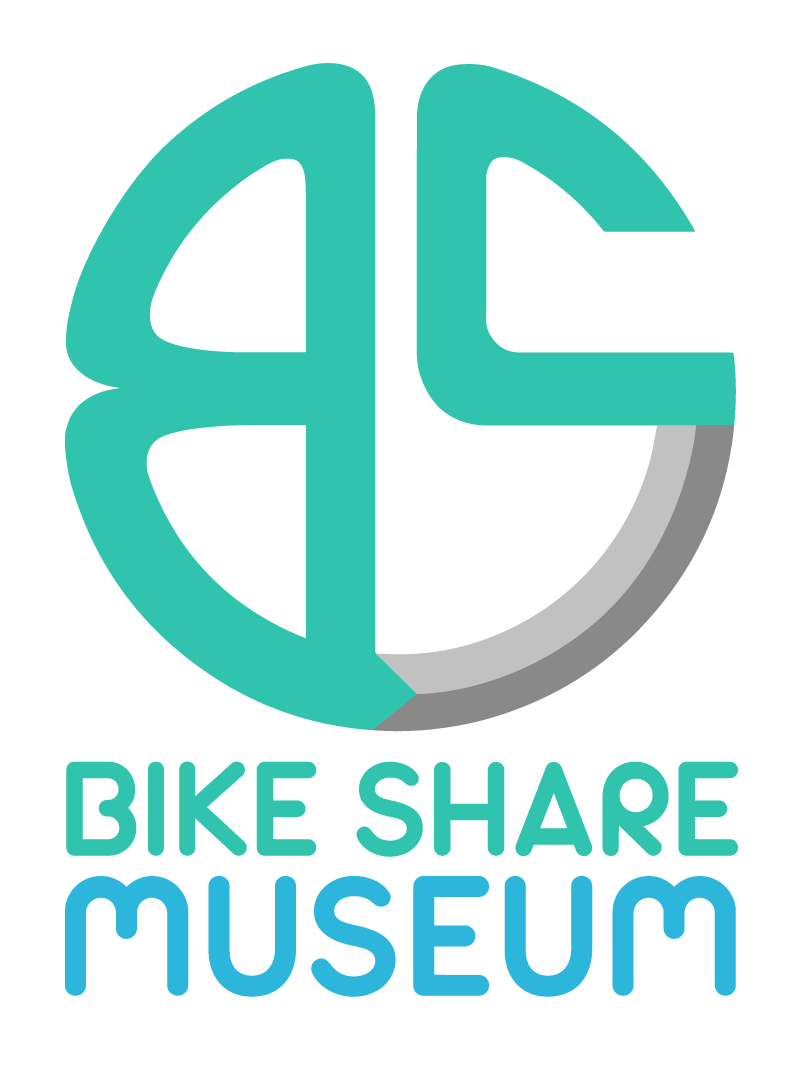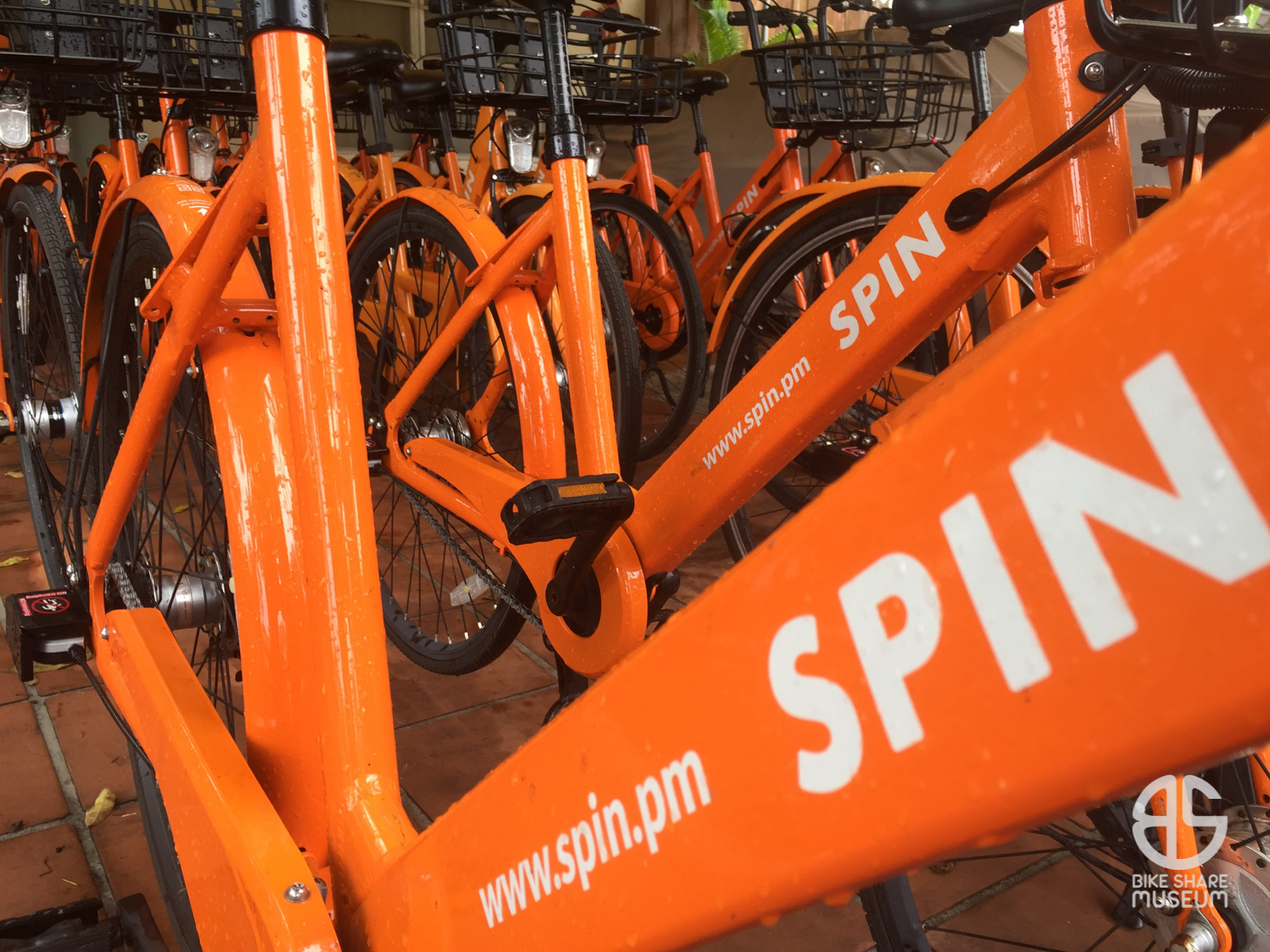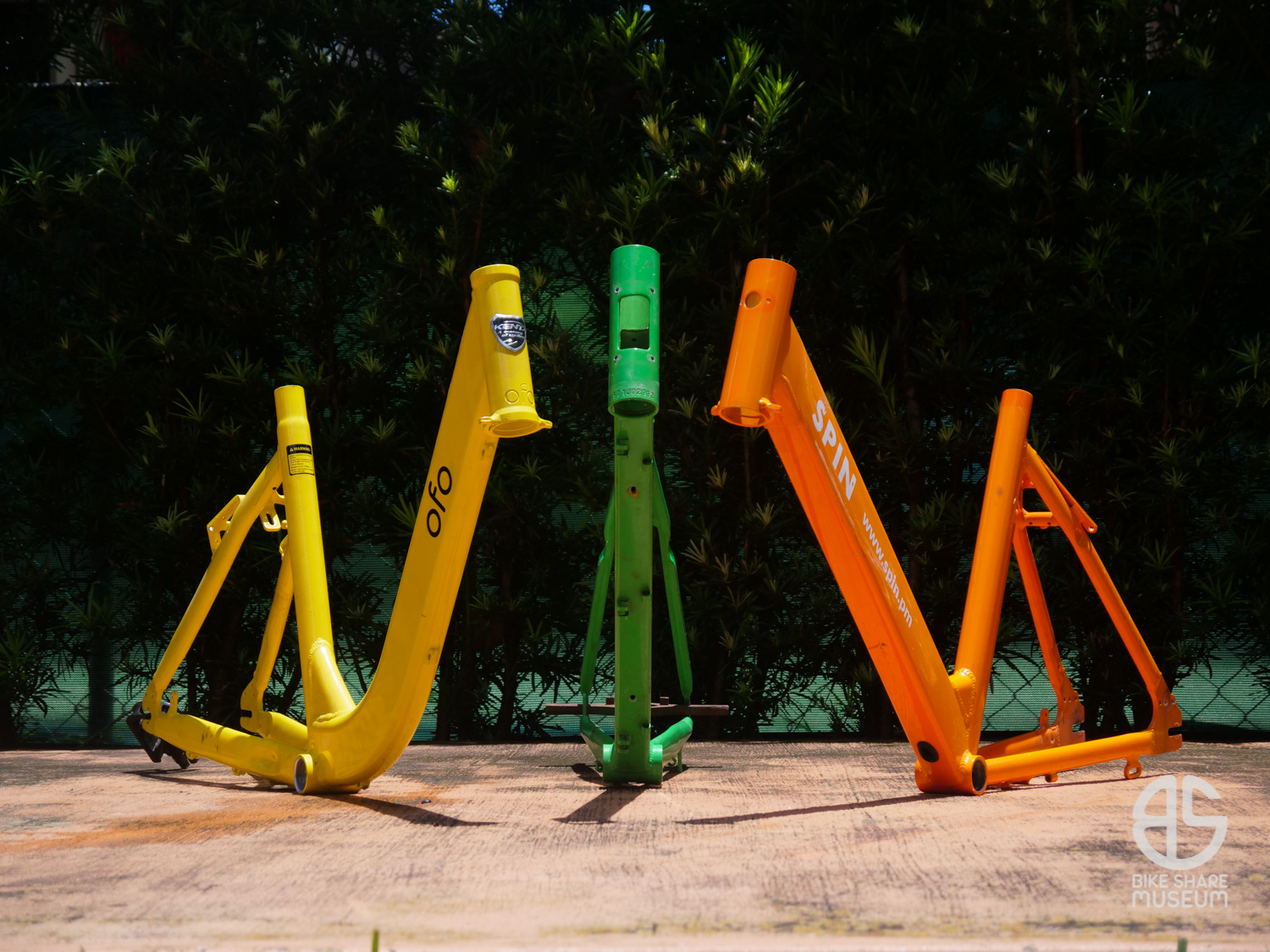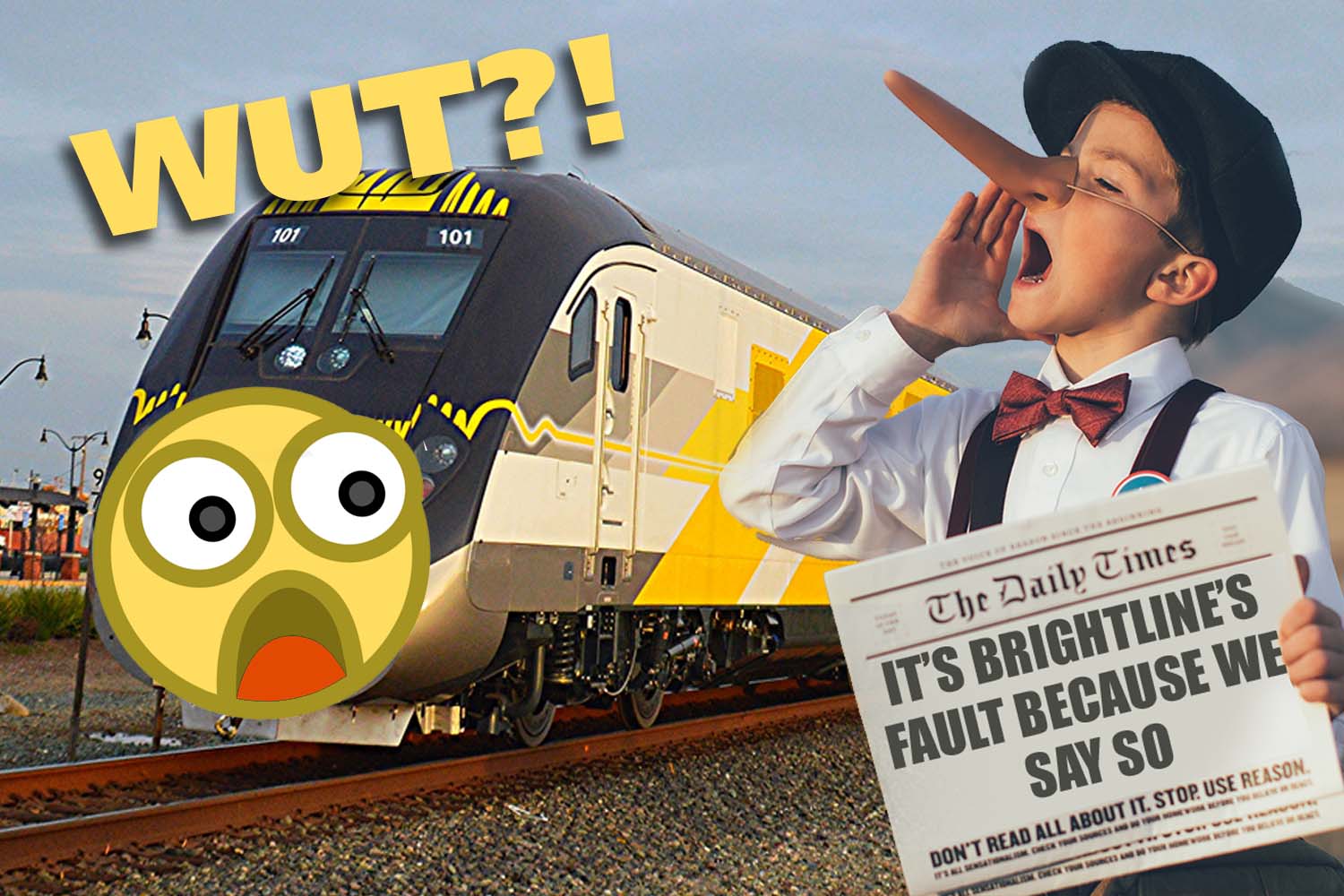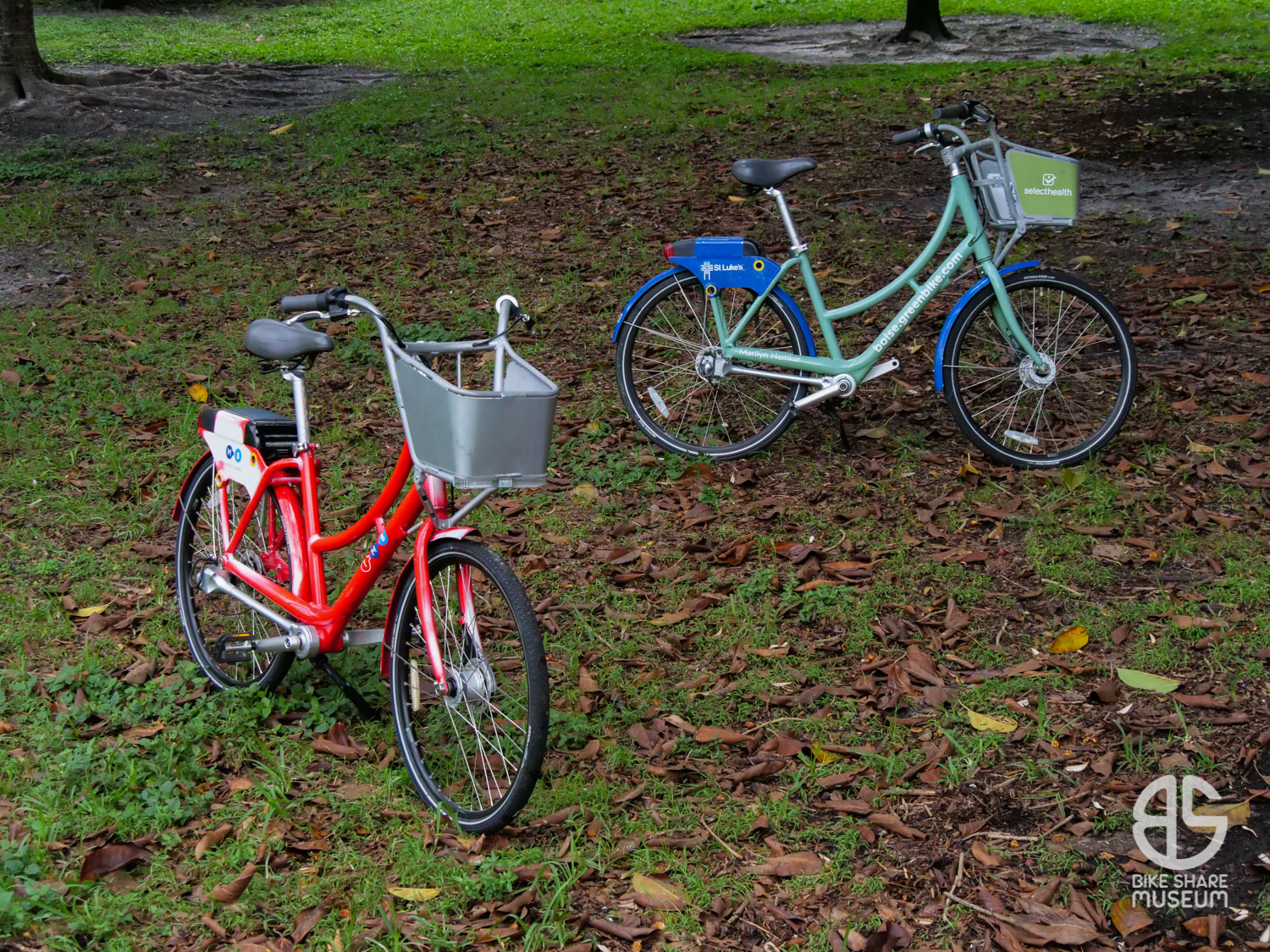The #SpinBikeProject: 600 bikes later
When I started the Bike Share Museum, all I planned to do was save a few bike share bikes for history’s sake. A wild microcosm of an idea, even for a bicycle collector such as myself.
Then, back in November of 2019, Spin donated two of their bikes to the Museum and gave us an the opportunity to give away 80 bikes to help with the Hurricane Dorian relief effort.
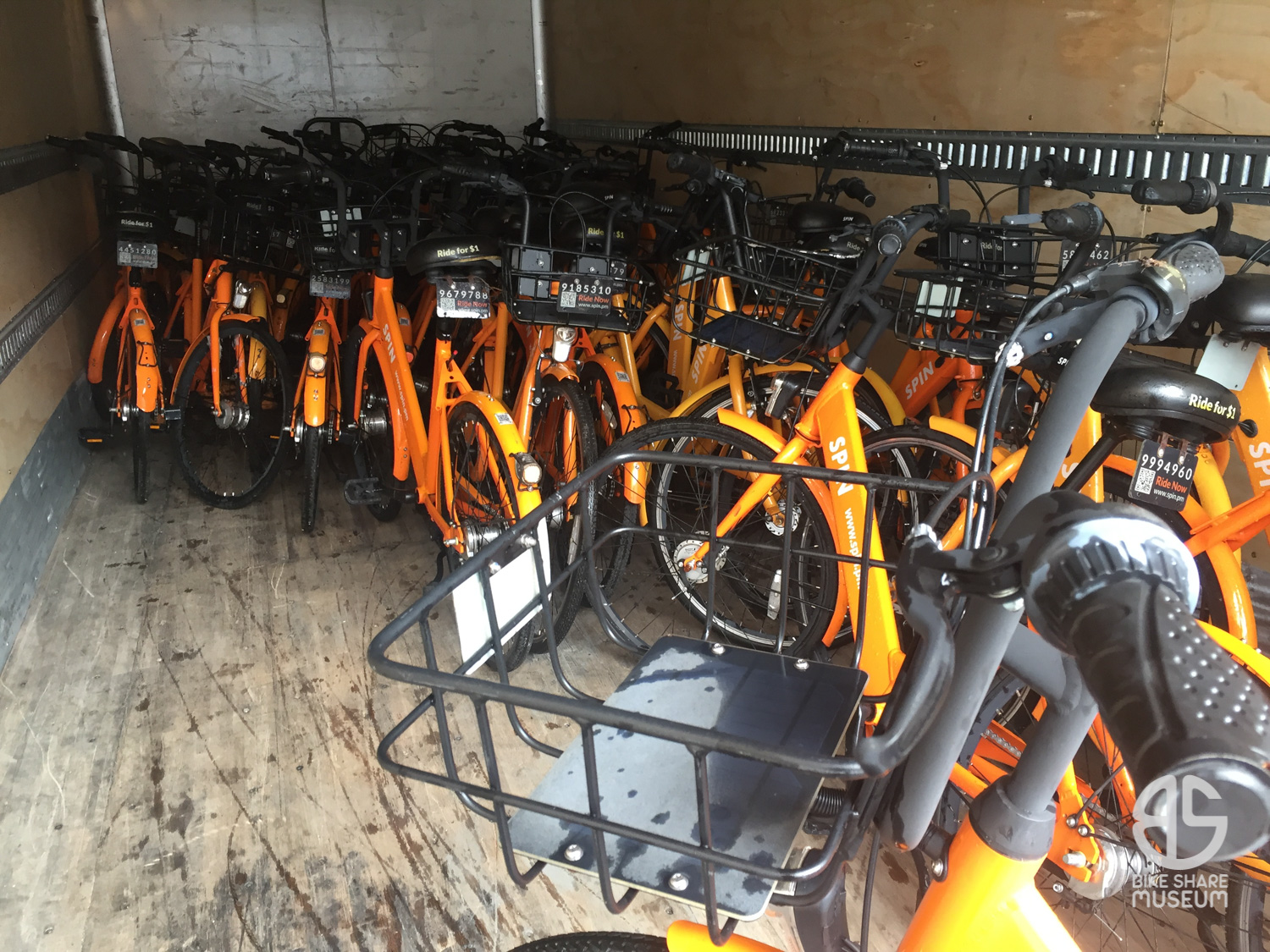
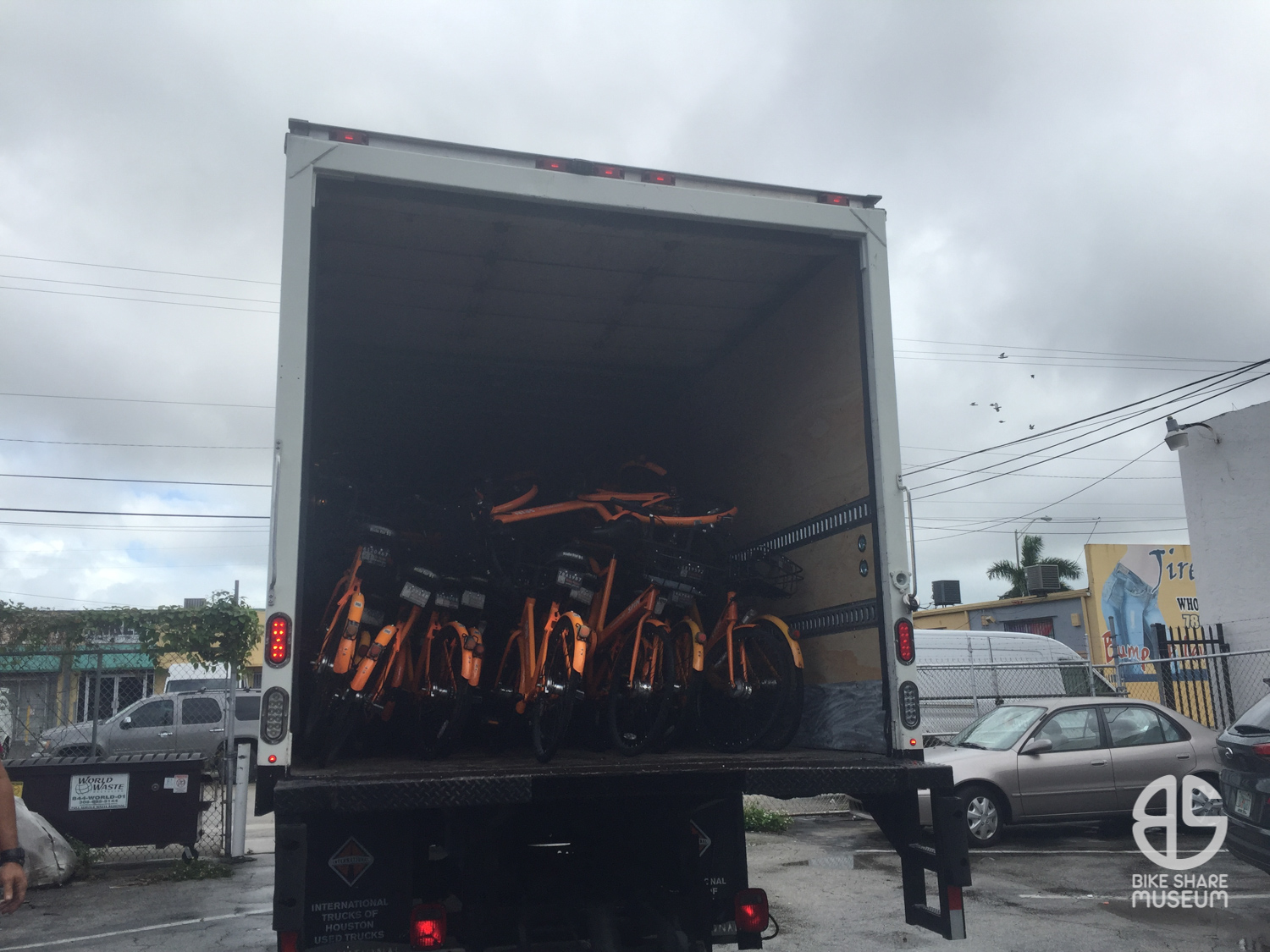
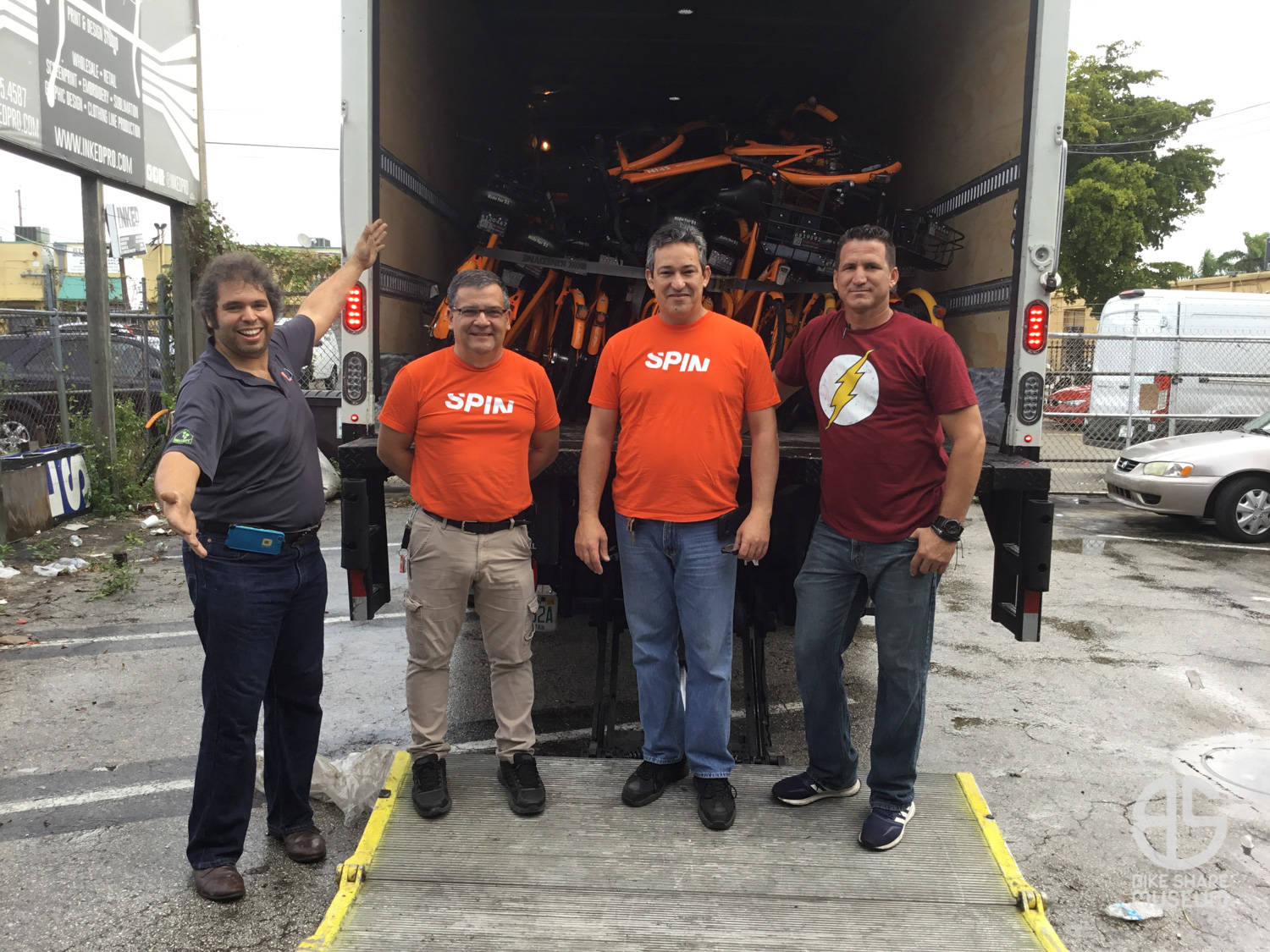
What I didn’t expect is that they were going to give the Museum another 500.
But that’s exactly what happened.
This was unprecedented. The only major dockless bike share giveaway in the U.S. had been ofo, due to their exit from the U.S. market. The topic of repurposing retired dockless bicycles was another seven months away from receiving widespread interest.
At the time, bicycles were being phased out of Spin’s micromobility mix down here in Miami. Scooters had proven their popularity and the bicycles were unwieldy to rebalance. Spin’s initial plan was to send the remainder of the working bikes back to San Diego, where they still operate a fleet on the UC San Diego campus.
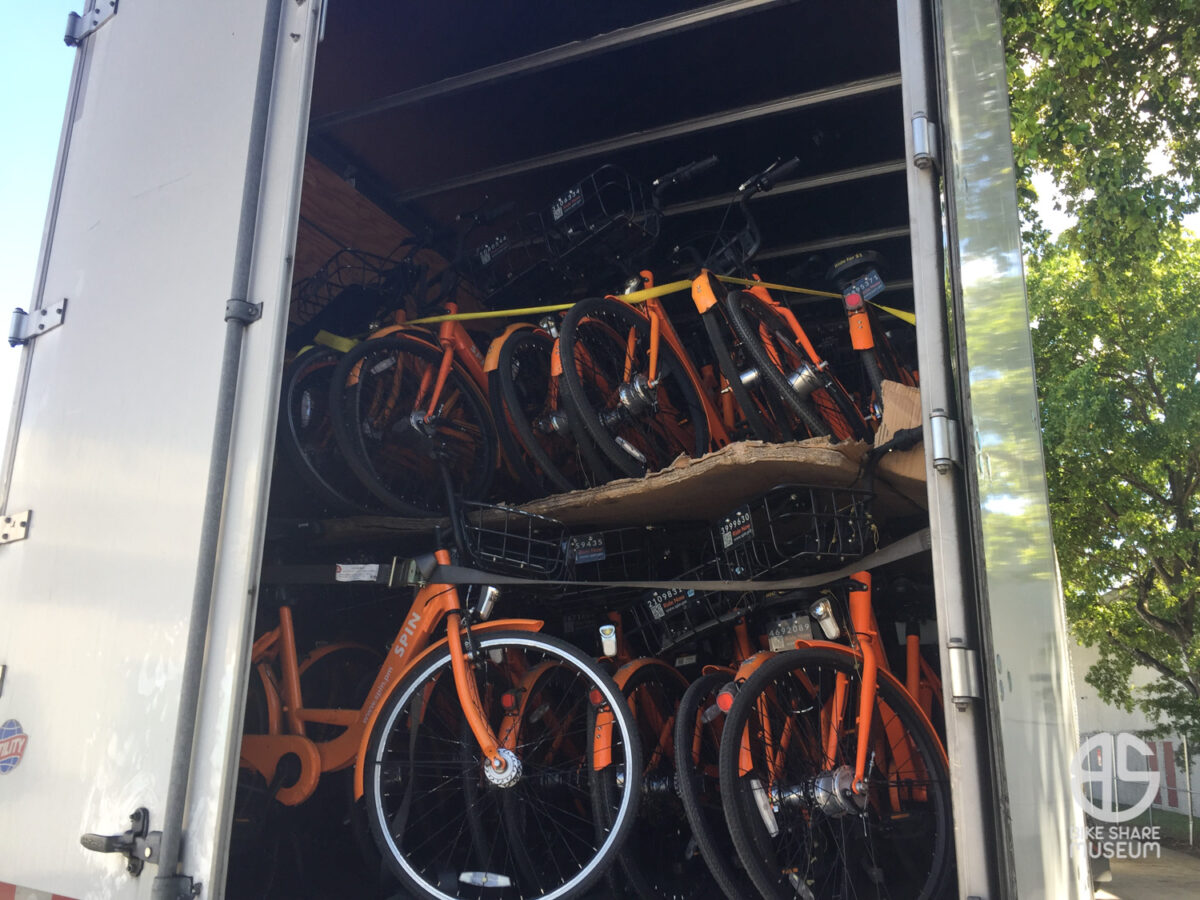
Just over 200 bikes were trucked out to the West Coast when the plan changed – and the Museum wound up joining the league of worldwide bike donation squads. This was before COVID19 and the corresponding bike boom, but the lack of a pandemic didn’t mean there was any less of a demand for bicycles.
With the help of urban planning researcher Mark Tirpak – and later, fellow 3-speed bike collector Don Lambert – we were removing locks and numbers at a rate of 20 to 30 bikes every two hours at Spin’s warehouse, and that was barely enough to keep up with demand.
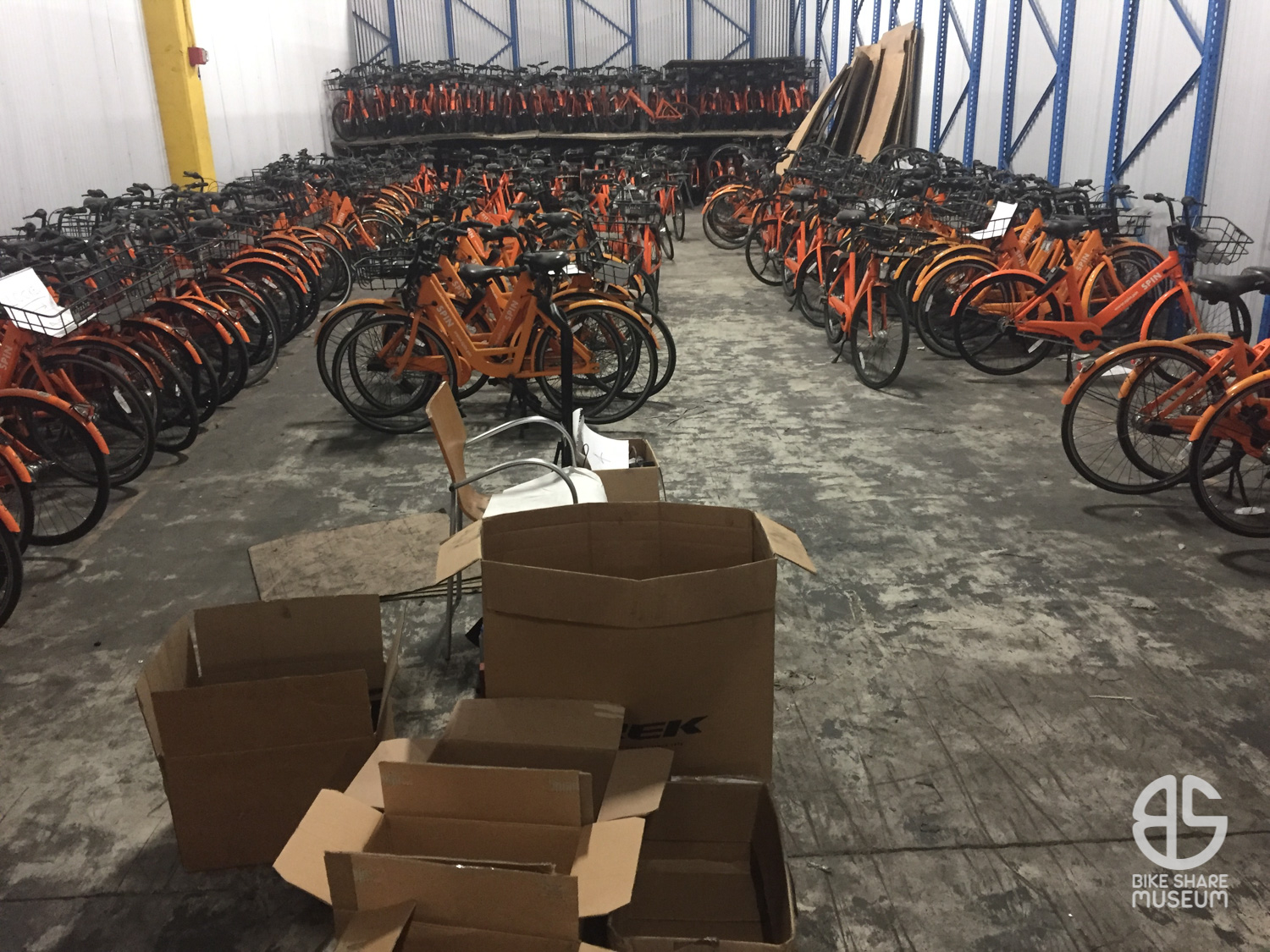
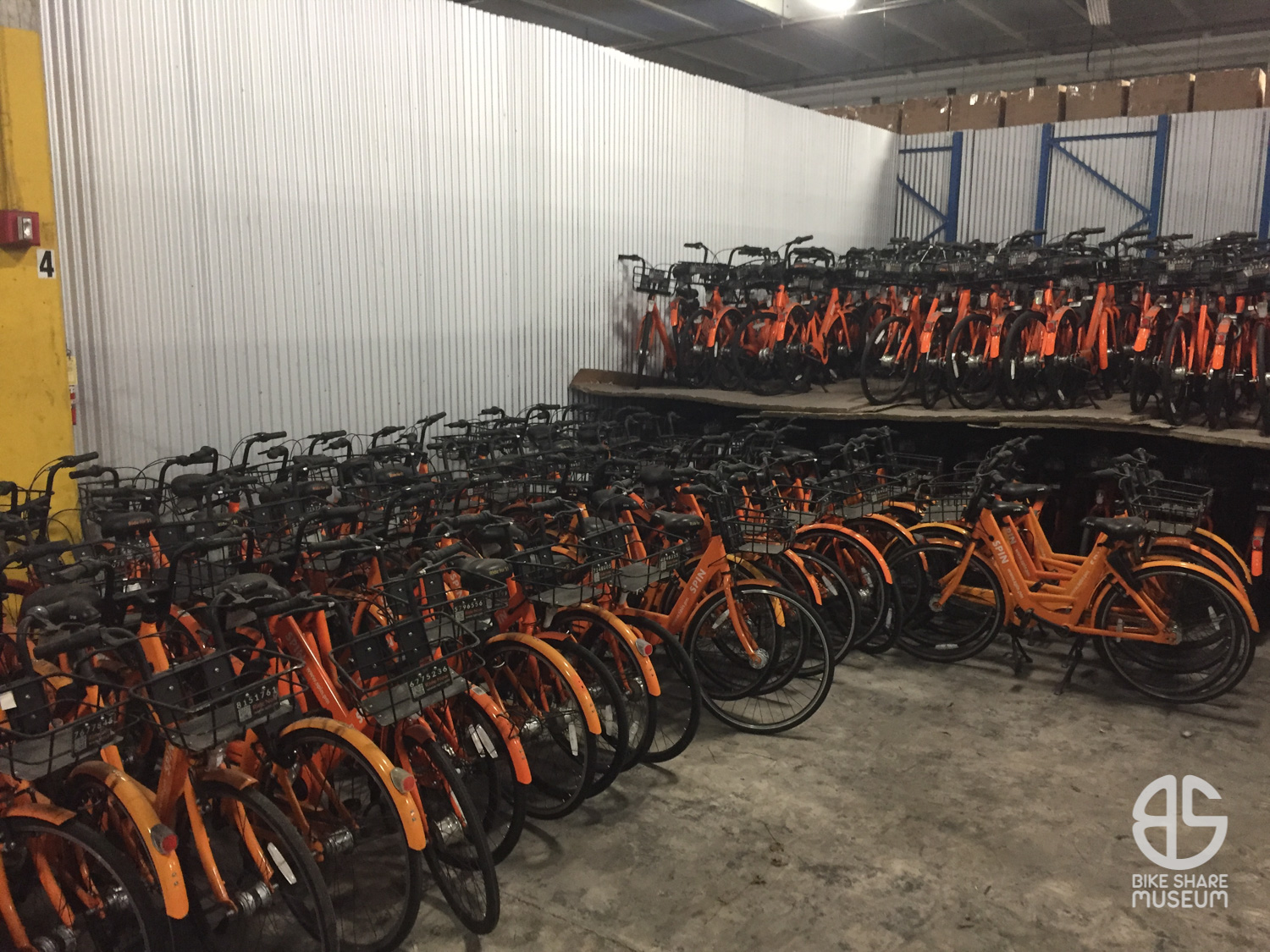
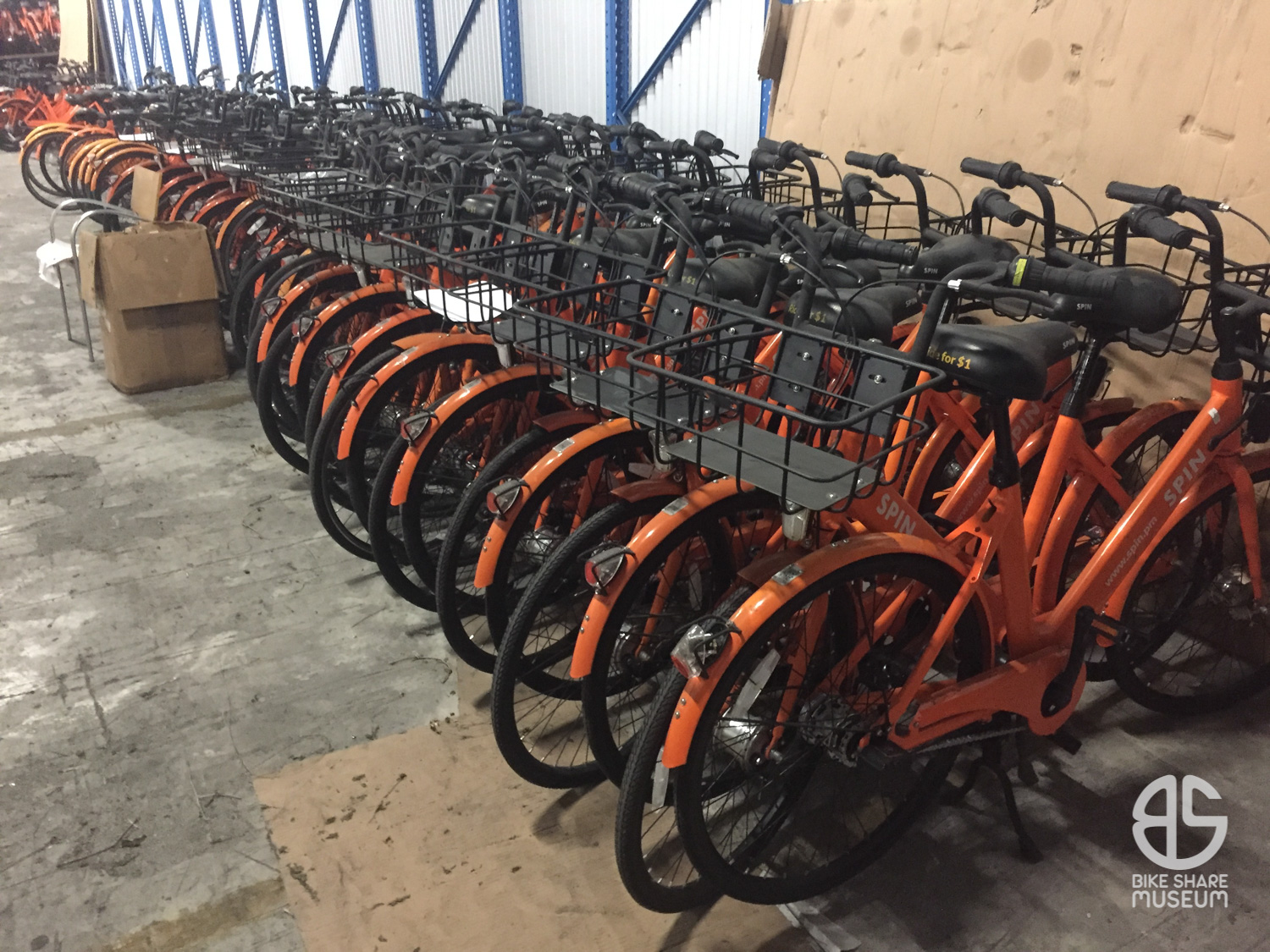
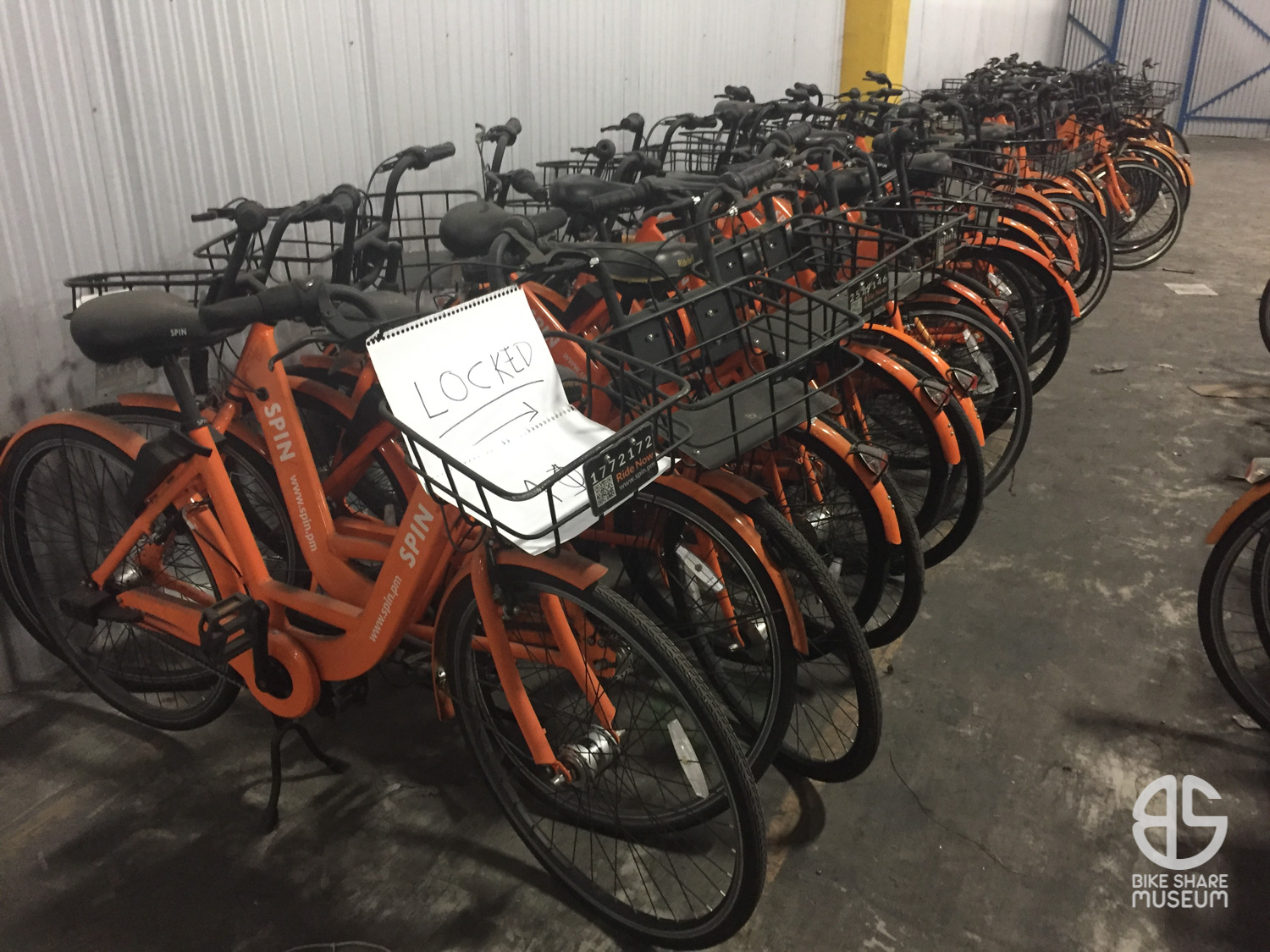
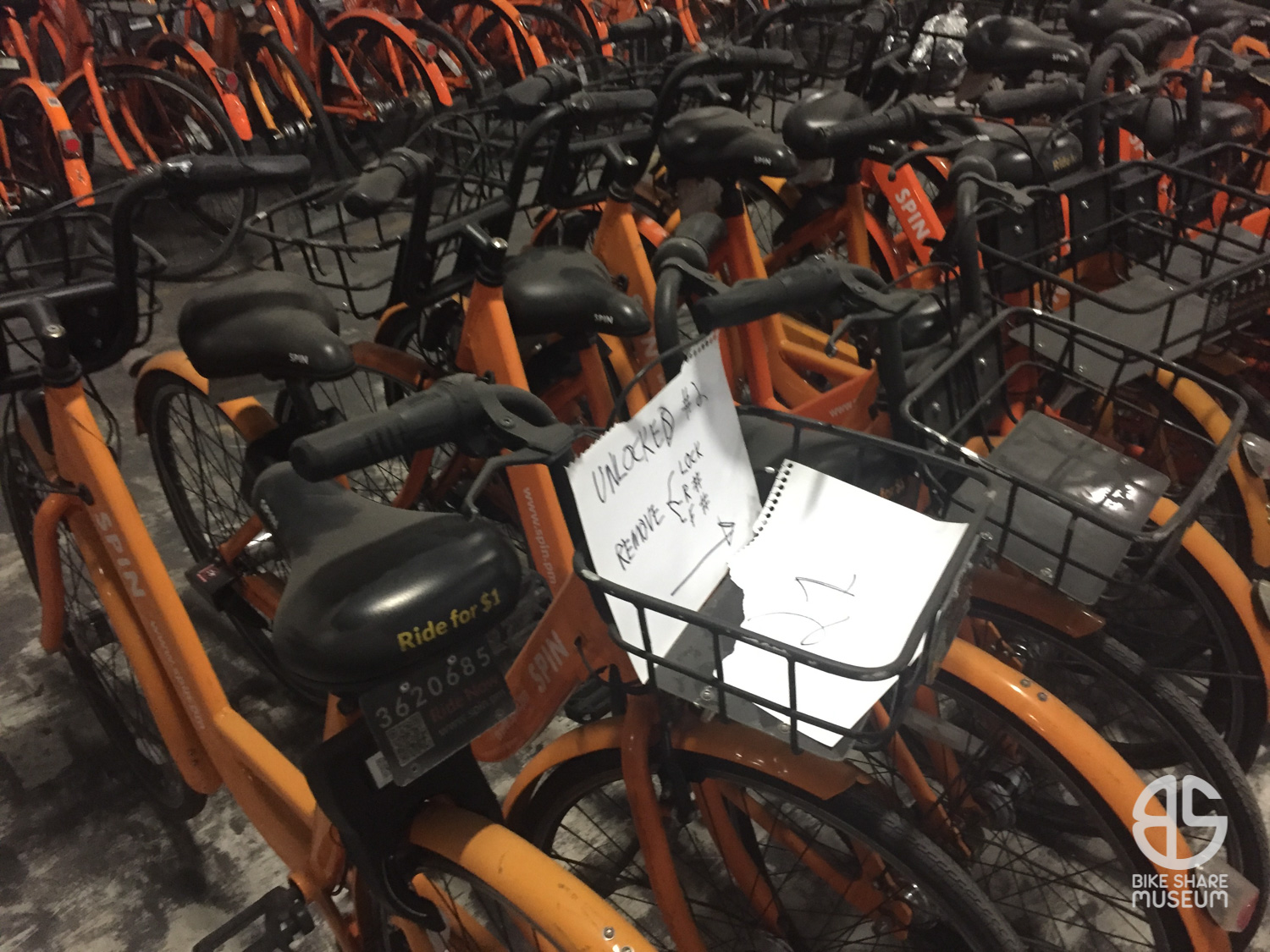
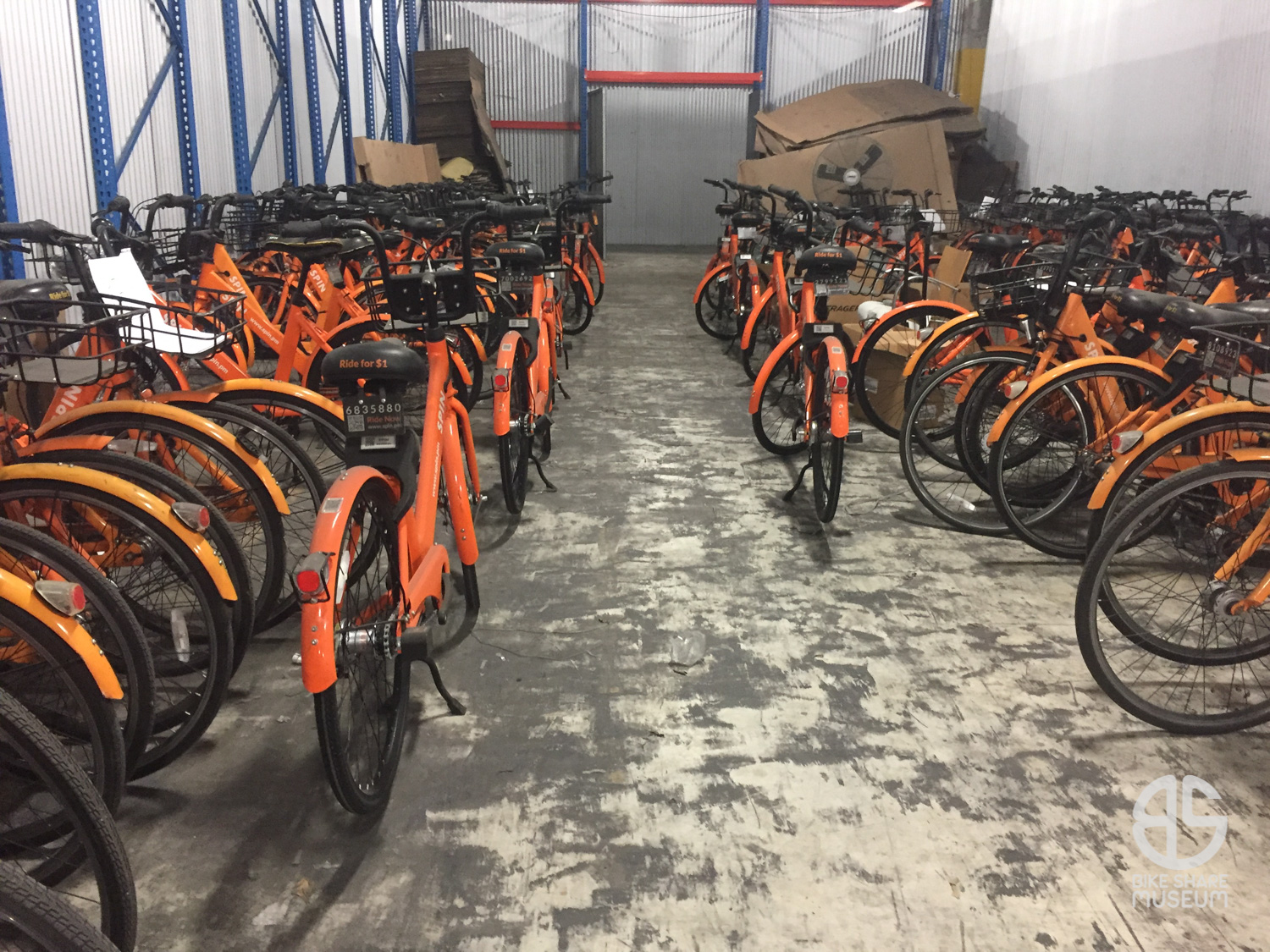
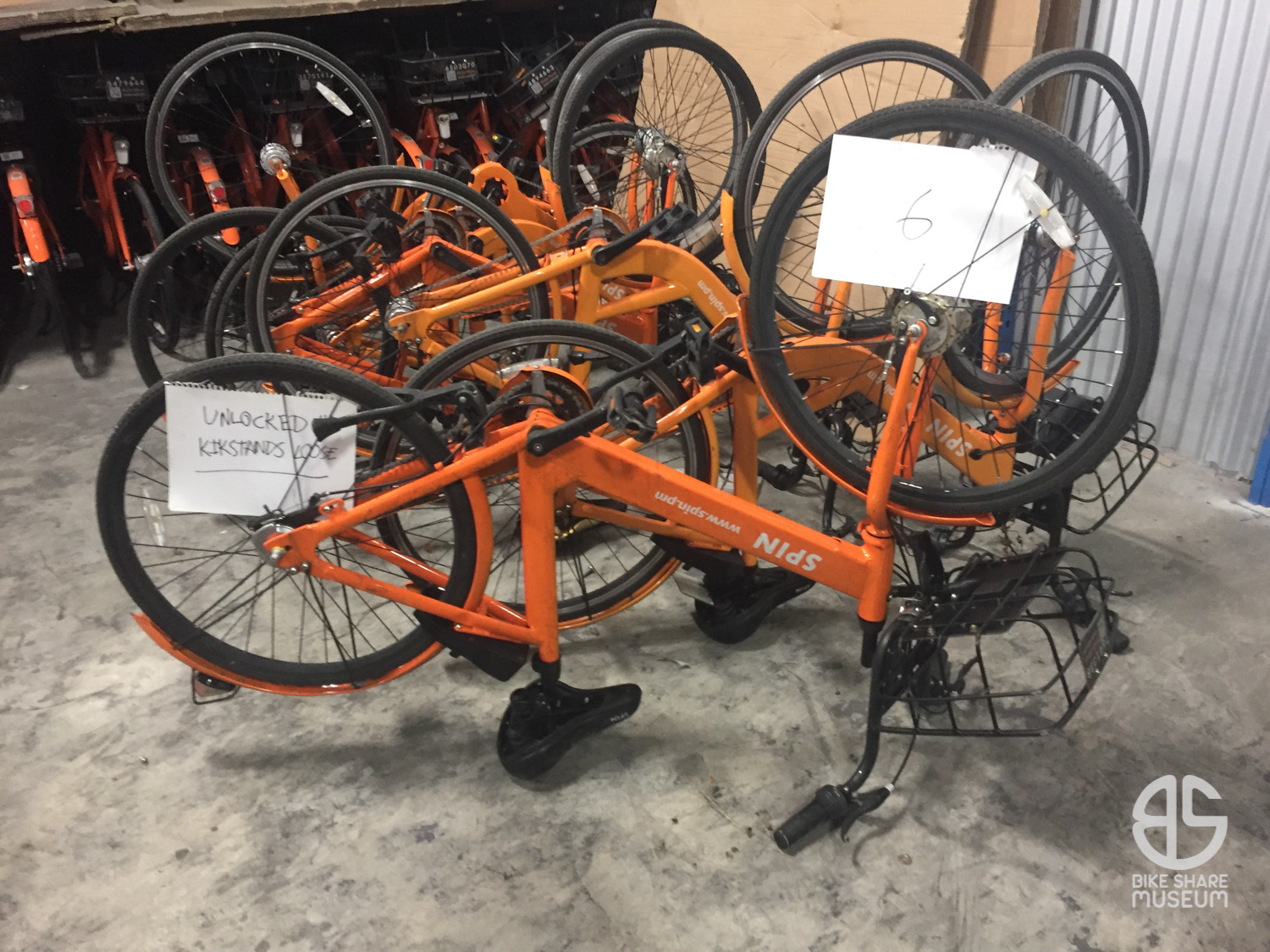
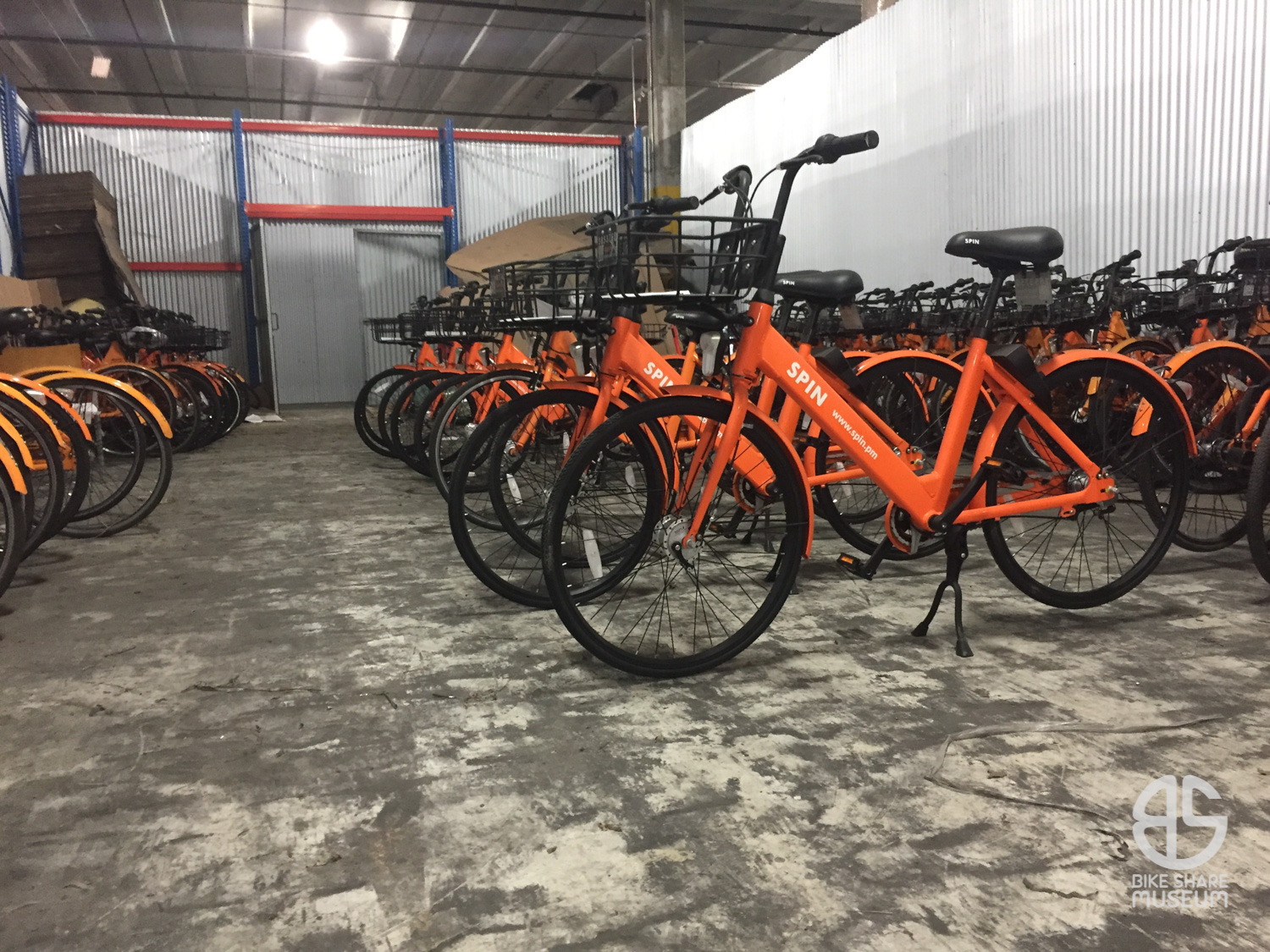
Yes, 20 to 30 every two hours. You’d be surprised at how slow the process can be, especially if the bike is locked. Most solar-charged IoT locks aren’t going to power up when they’ve been indoors for a year, so even Spin staff couldn’t help unlock them.
That didn’t stop us. Electric drills whizzed and kickstands were replaced. Twisted fender stays were bent, pulled, and beaten back into alignment. A dead line of the roughest, unfixable bikes began to form from which parts were sourced. Bikes were wheeled out into the sunlight where charities, coworkers, friends, and organizations loaded up the bikes and distributed them to new homes.
I especially want to give Cynthia Jones – a coworker at the University of Miami – a special shoutout for arranging for so many friends and neighbors to help move tons of the Spins to families throughout Homestead and Miami Gardens. Bicycles straight to the people. That’s what we like to see.
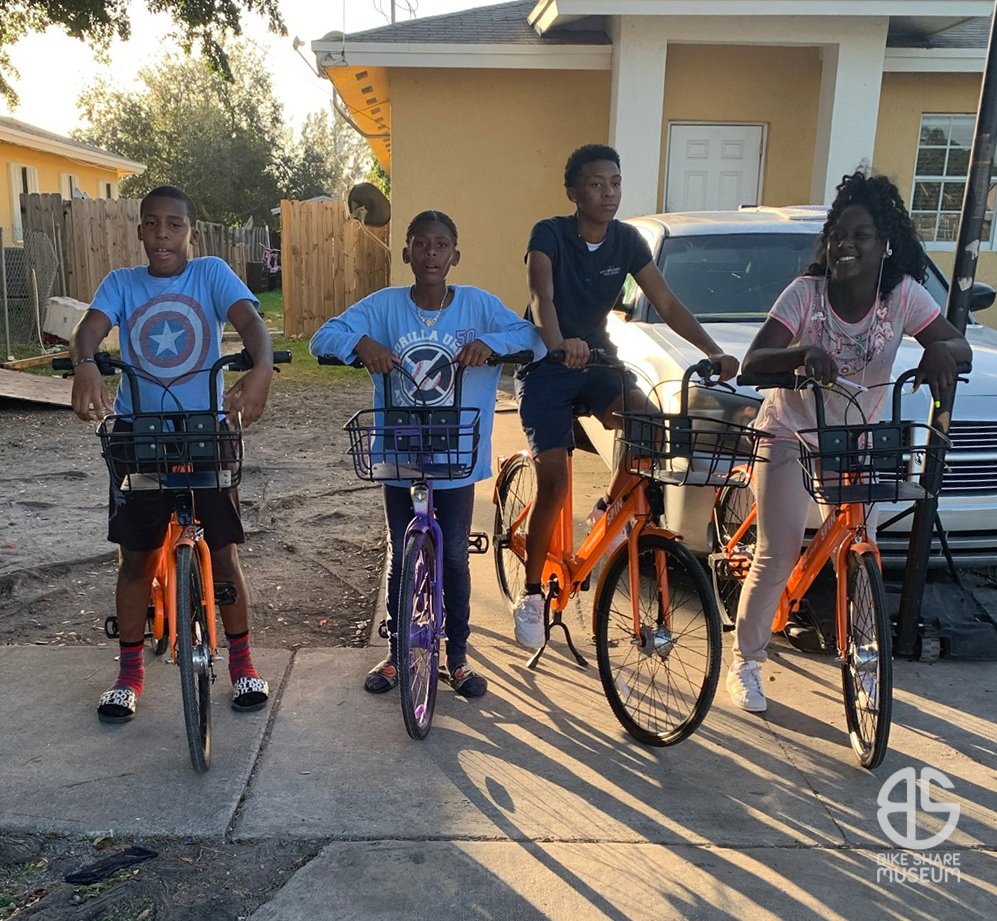
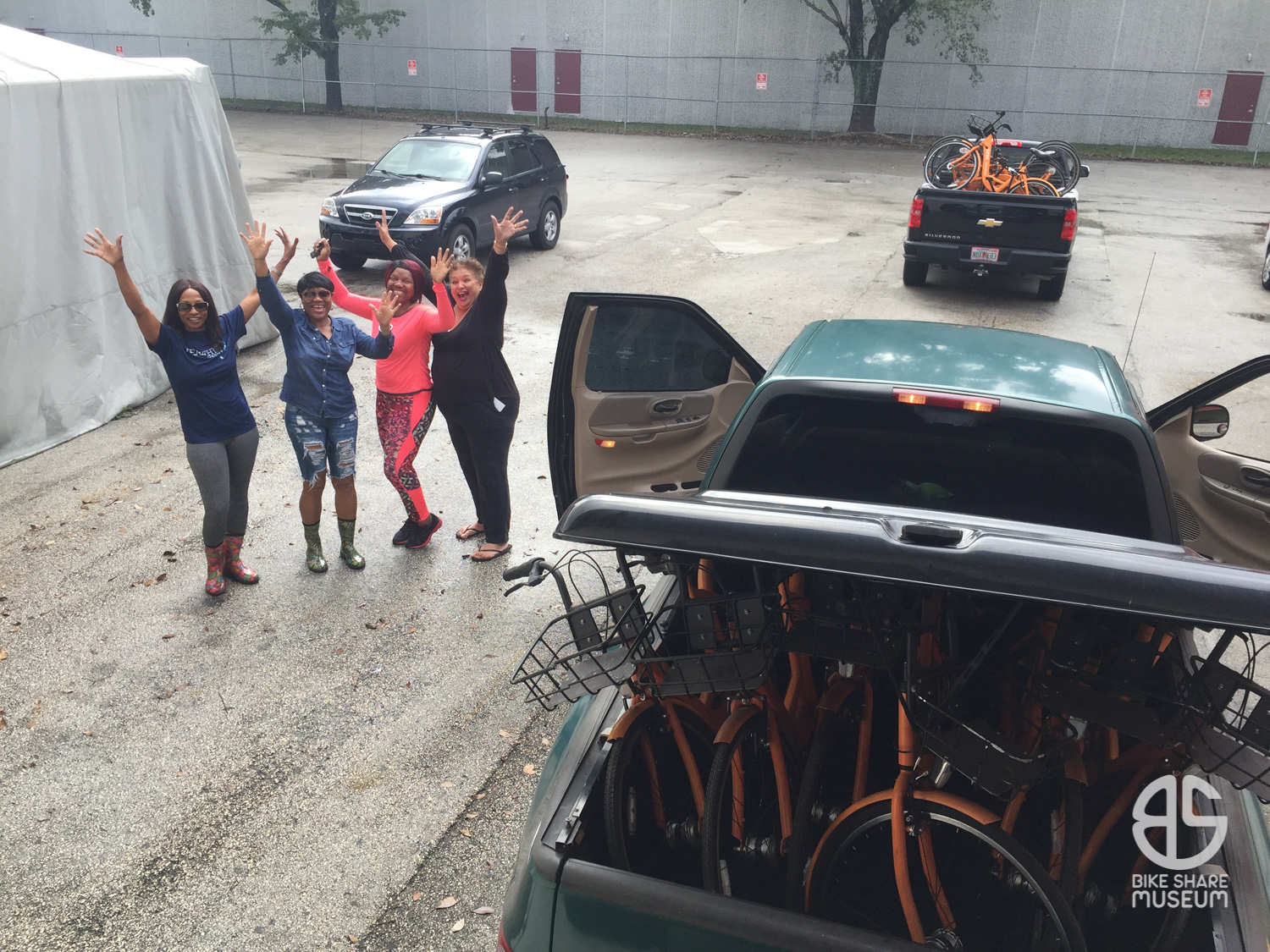
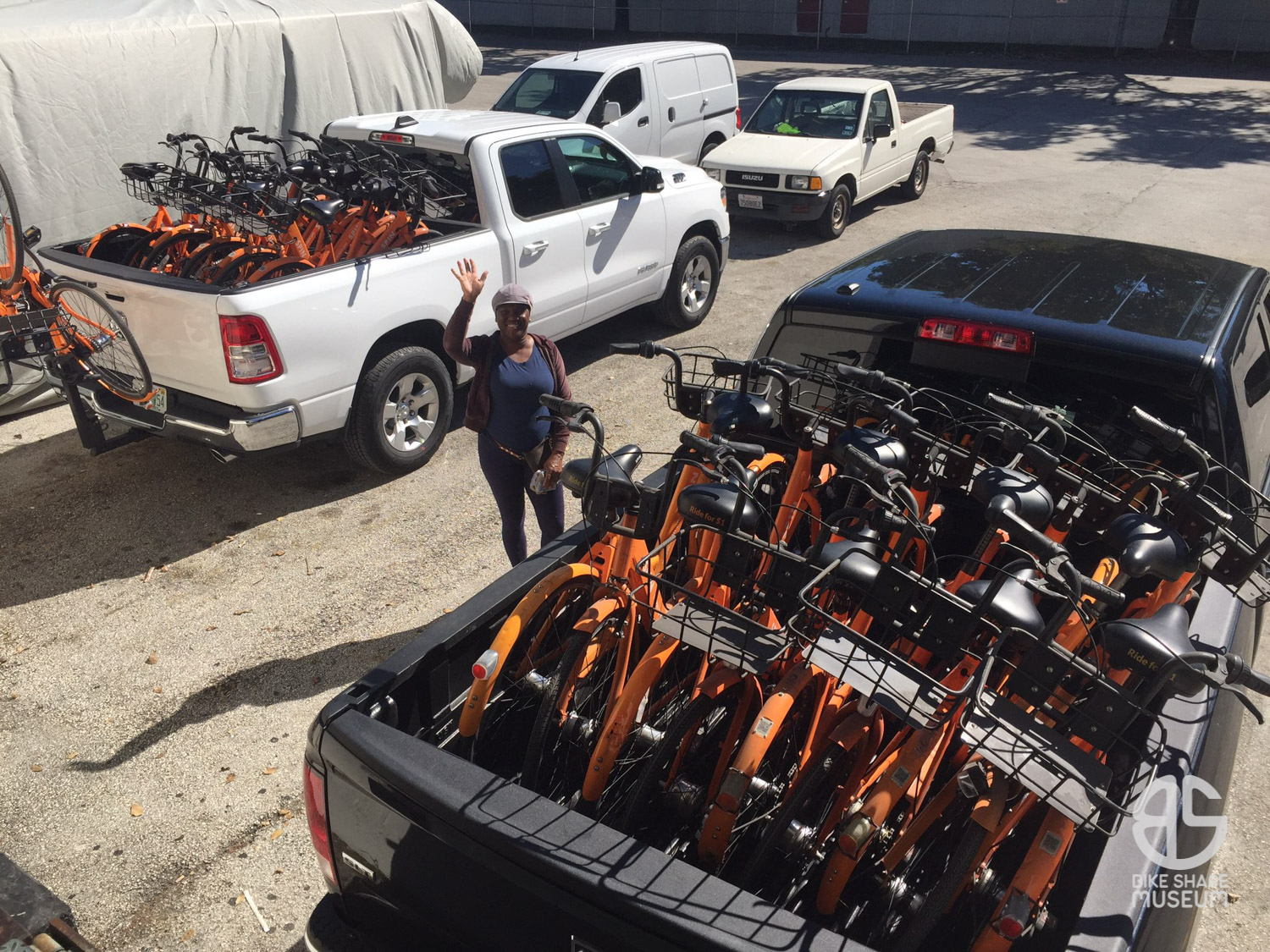
Some of the kids who received them reportedly suggested to their friends that “they ride their bikes to school” in a convoy. As someone who’s worked on Safe Routes to School projects before, this news made all the effort worth it.
Another special mention goes to Sue Kawalerski of Miami-Dade’s Bike305, who agreed to take on lock removal of over 200 bicycles for Miami-Dade Parks programs, including Bike305’s Learn How to Ride a Bike events (soon to return once the risks of COVID19 are no longer present).
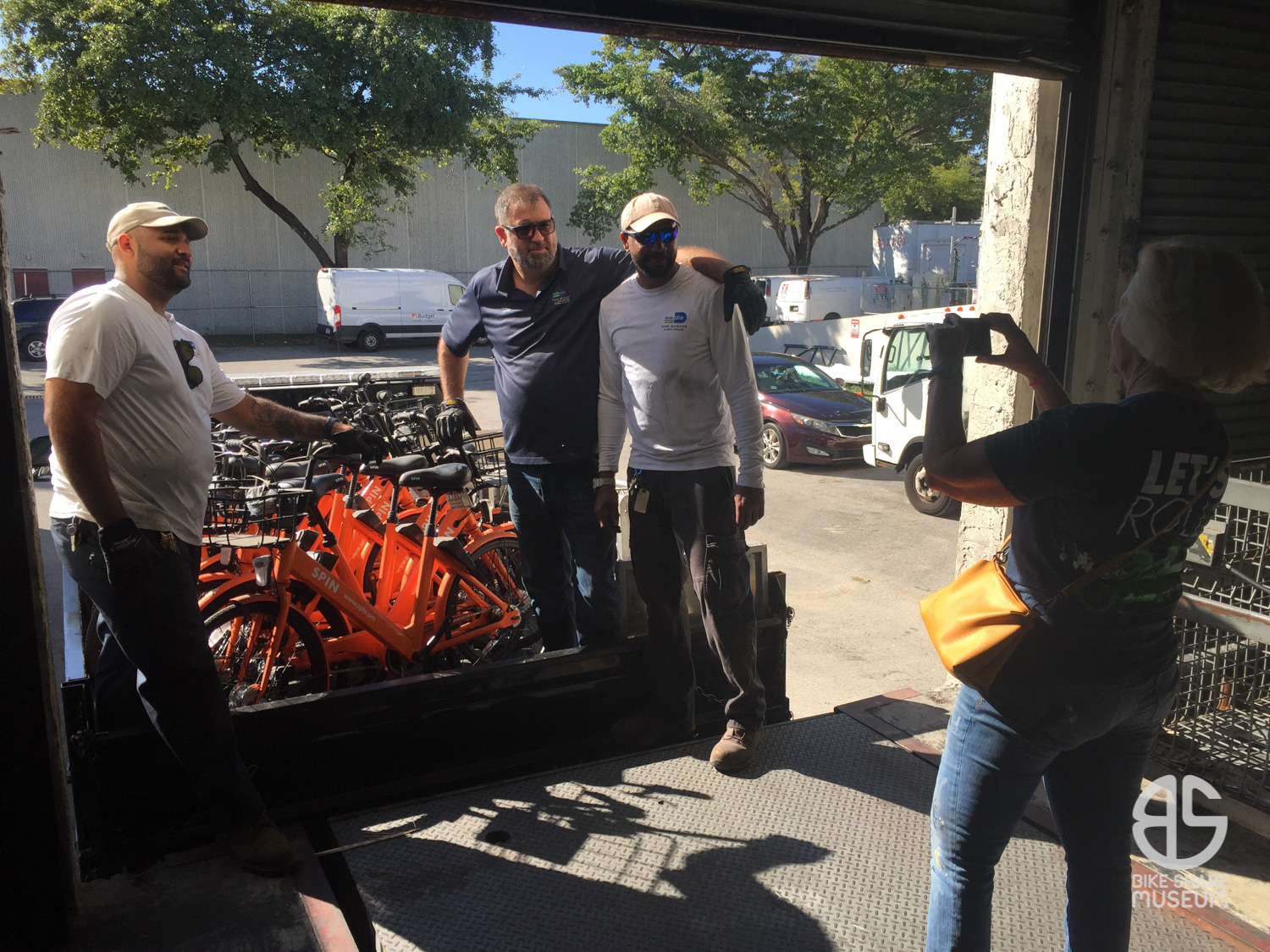
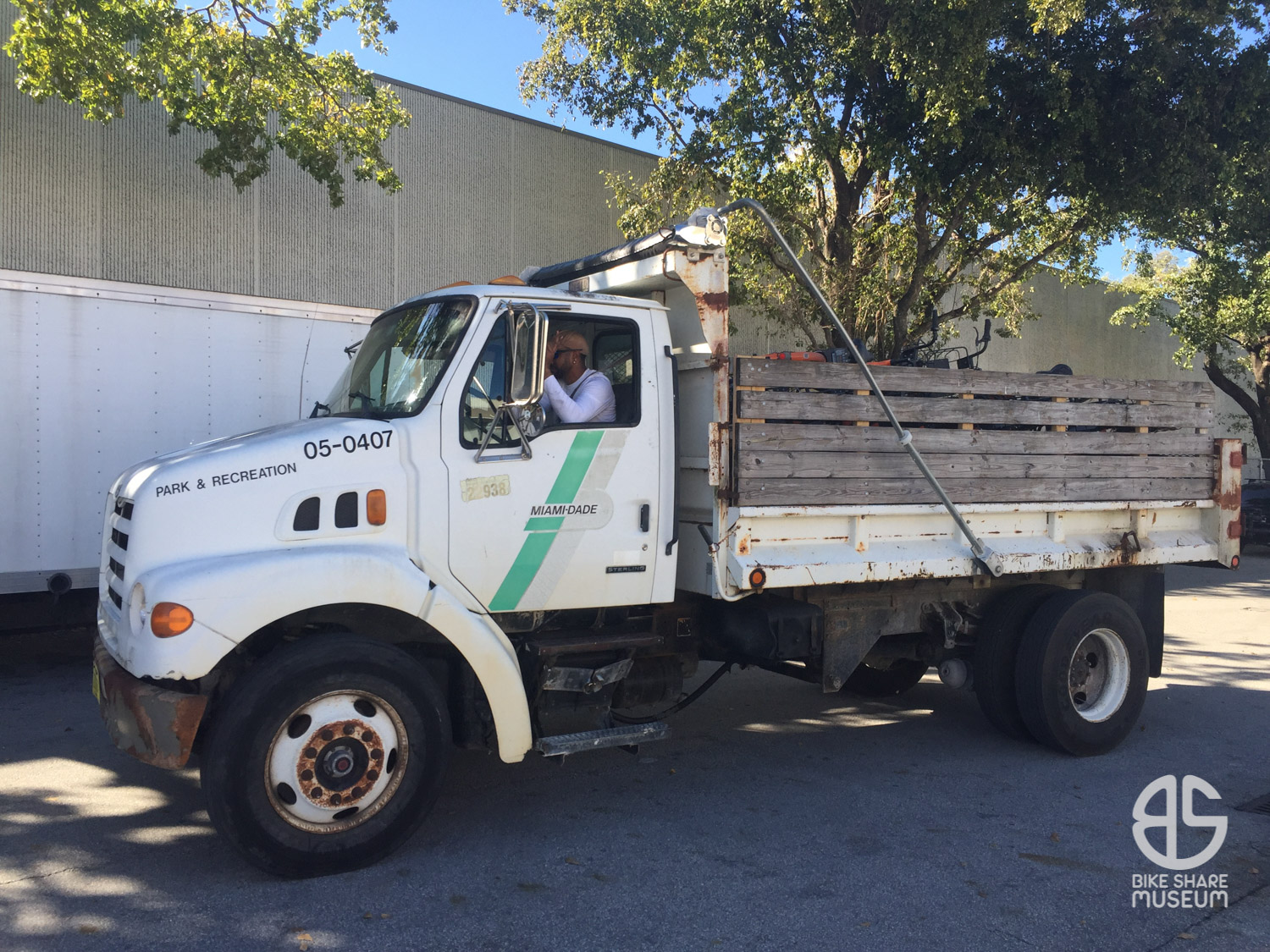
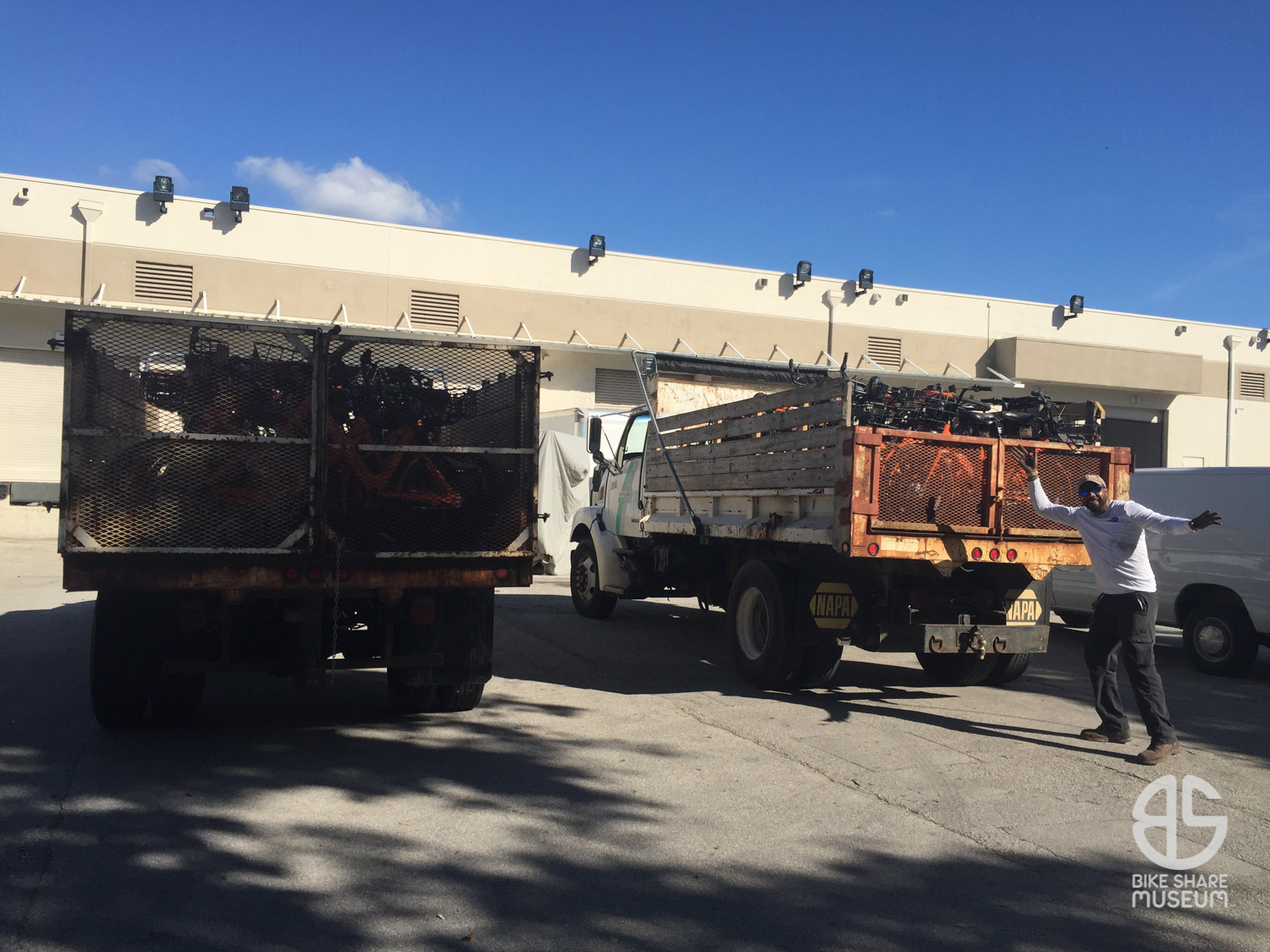
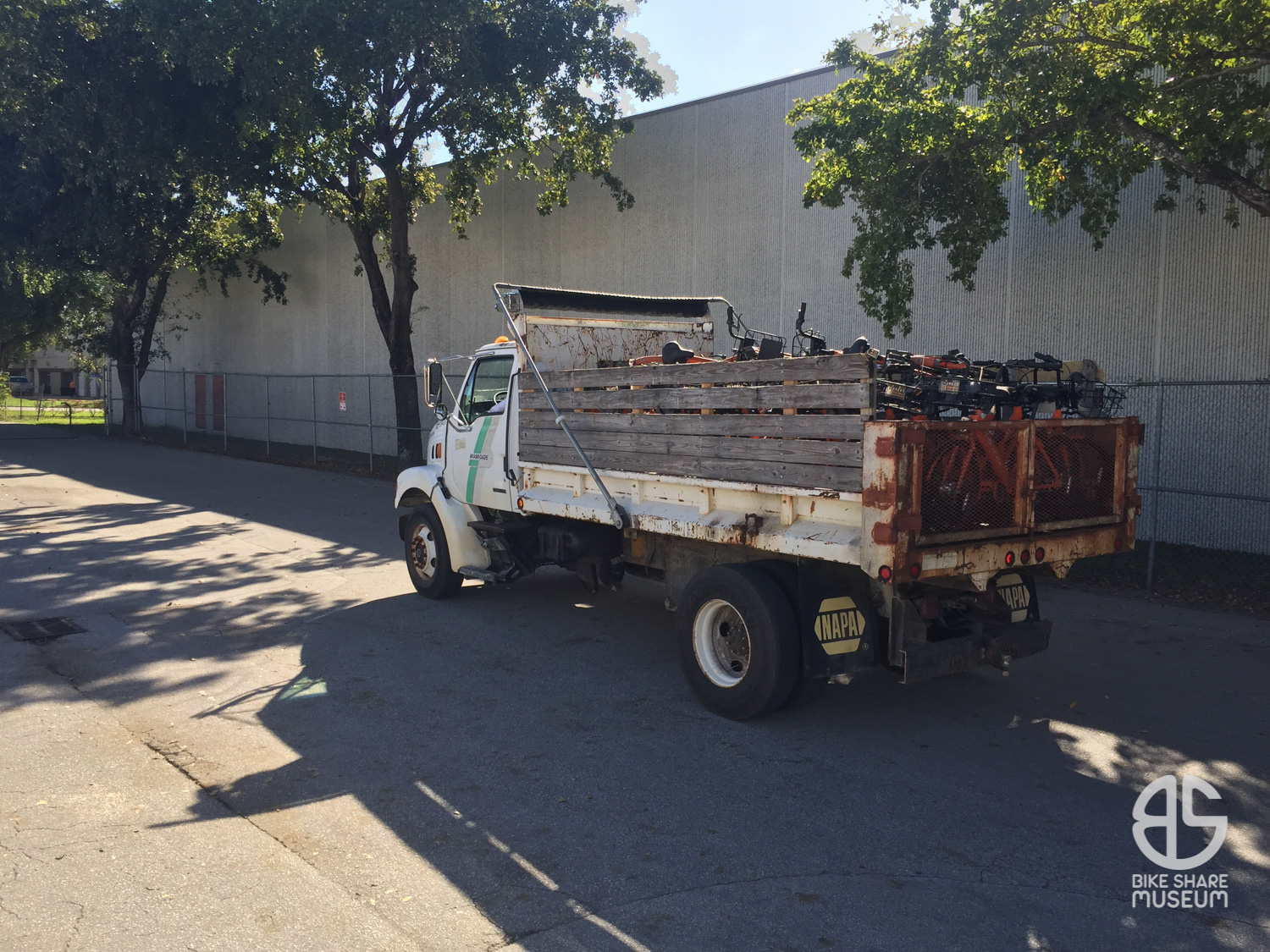
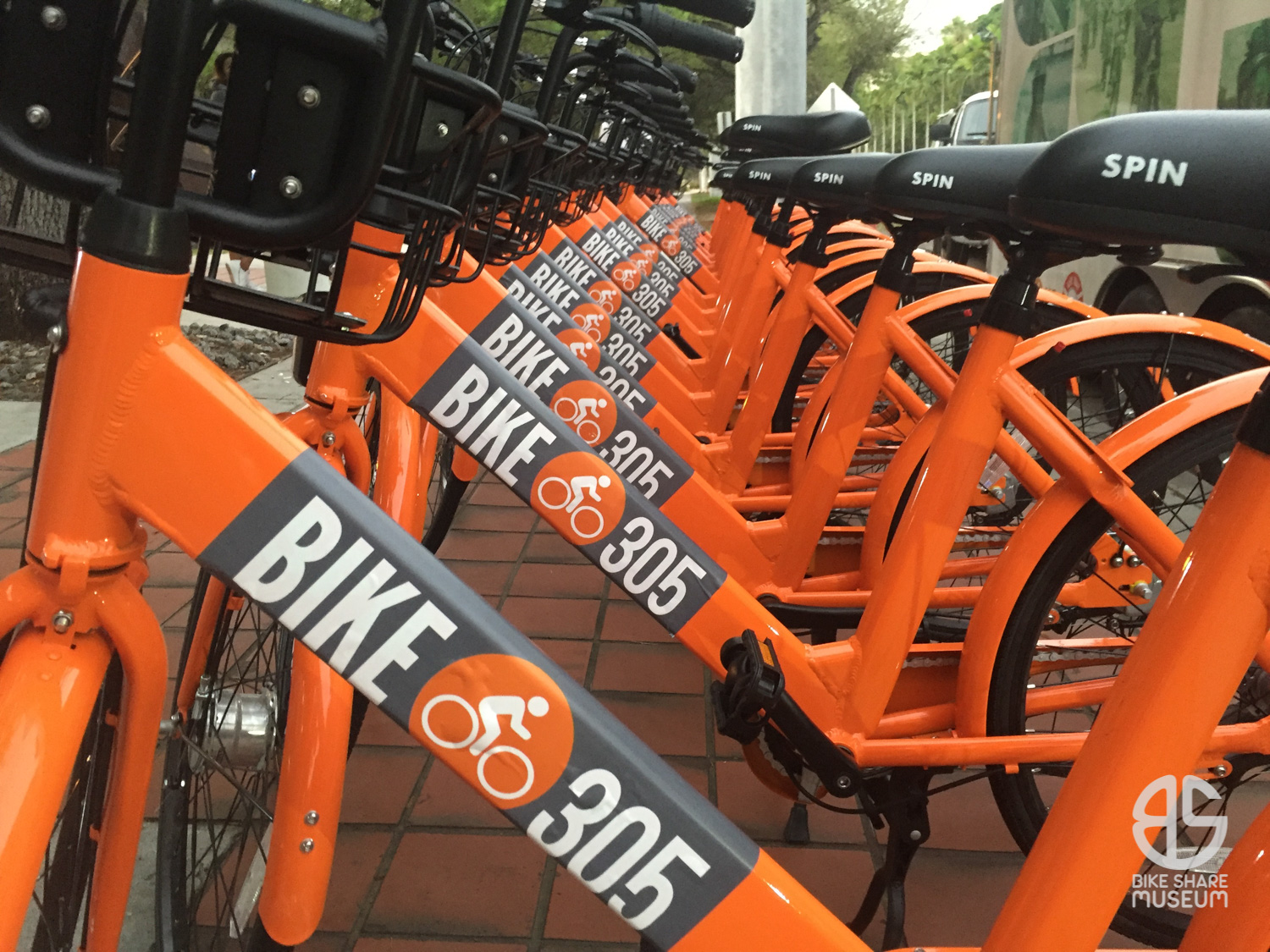
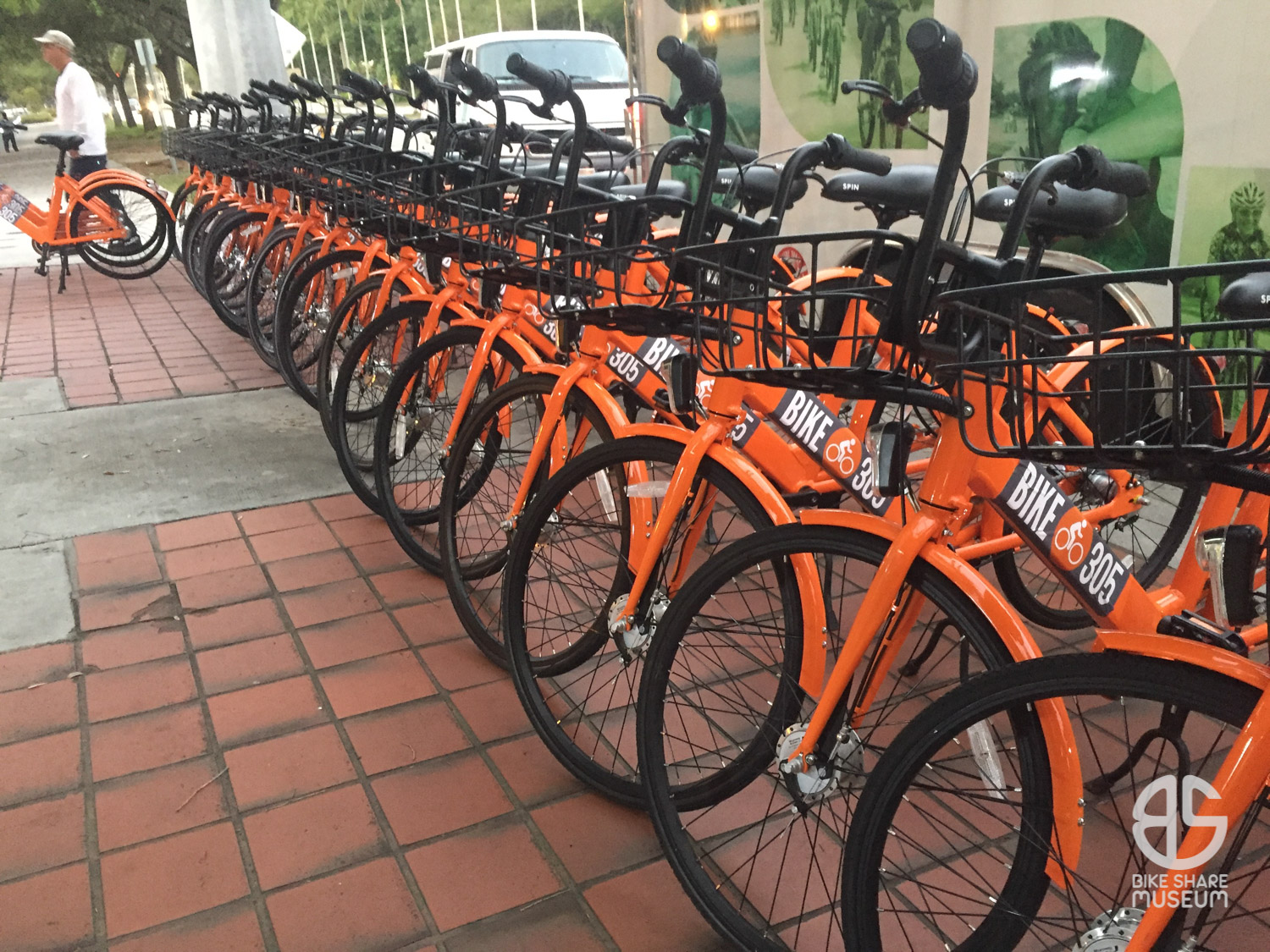
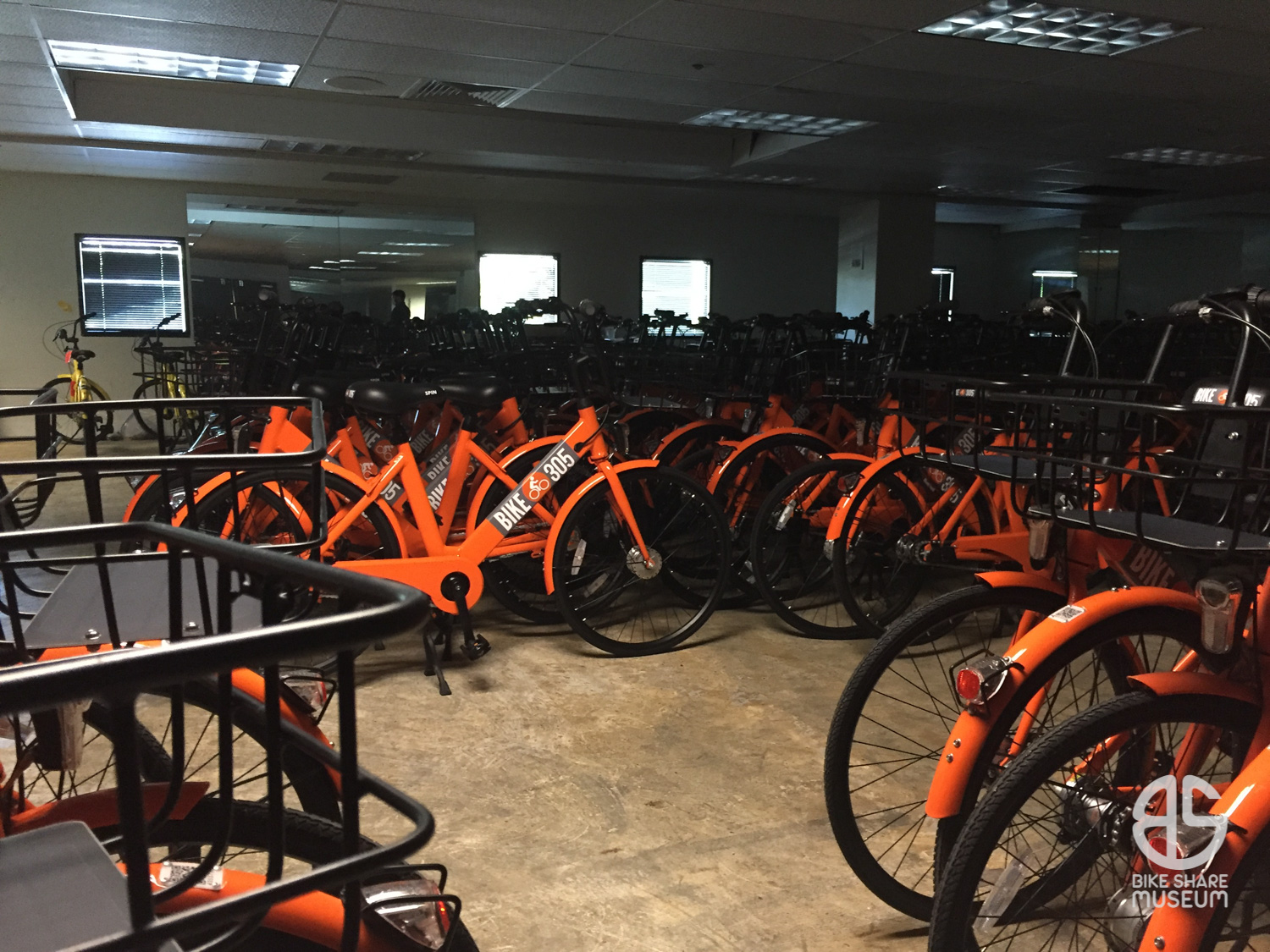
Countless additional bikes were distributed by co-workers, while an additional 25 were donated to Miami-Dade Public Schools’ Office of Community Engagement with the support of Toyota of North Miami.
In a few months, this community effort turned a warehouse packed with idle bikes into a virtually empty space. We had cleared about 500 bikes from the warehouse, with only 38 rough parts bikes remaining. It wouldn’t have been possible without Mark’s help, plus that of Gene and Lu from Spin.
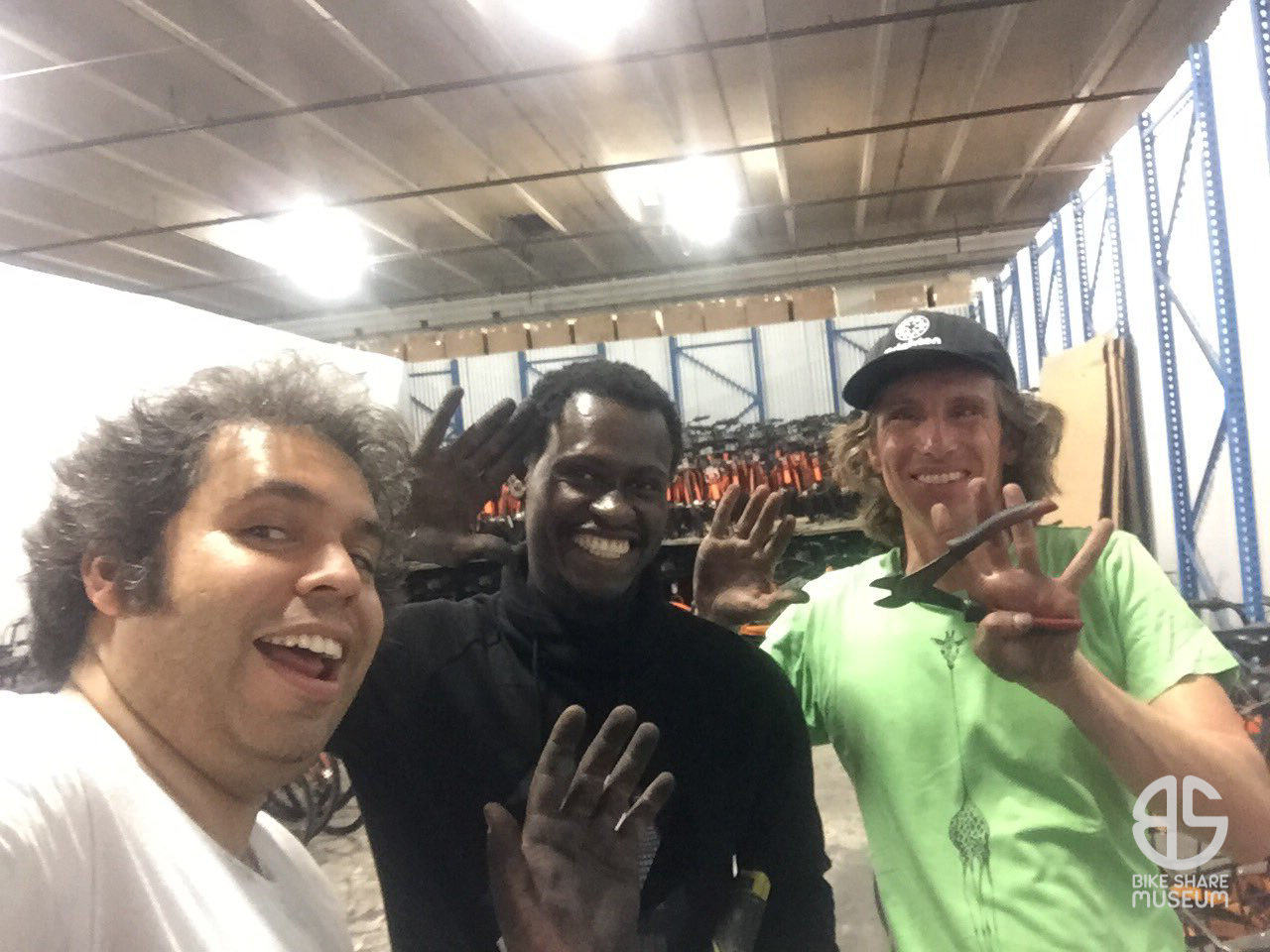
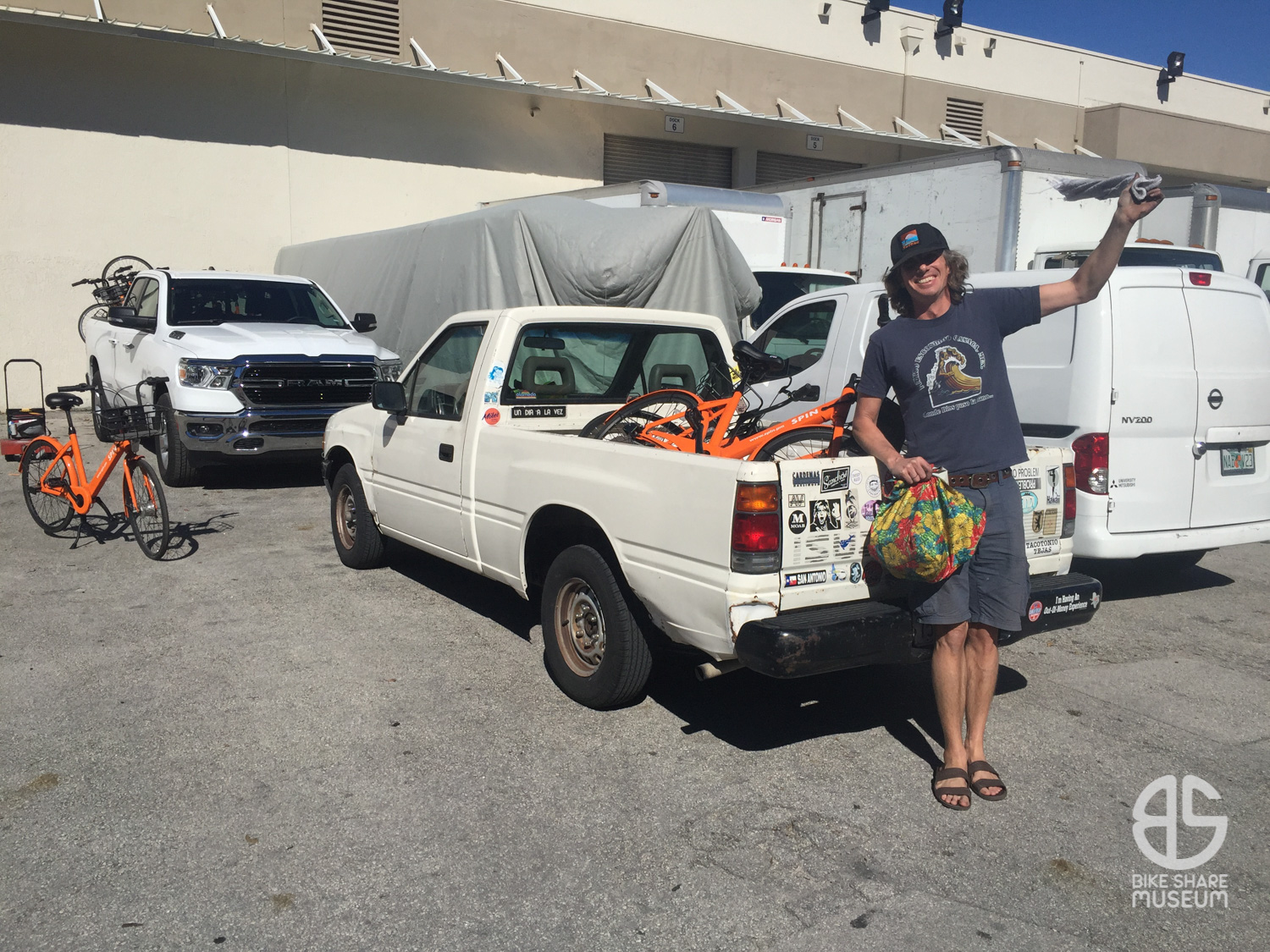
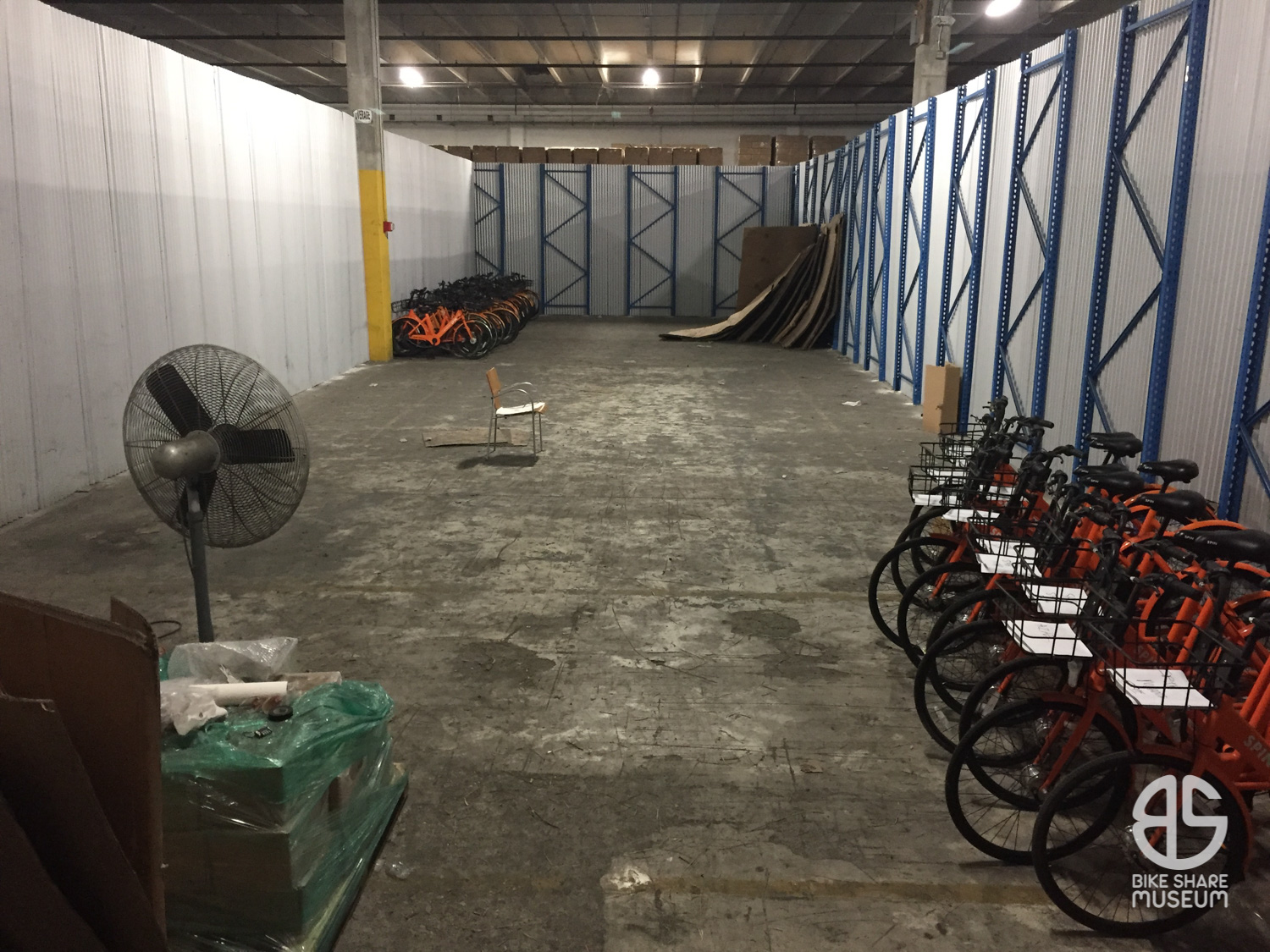
And so it seemed over. But was it?
Not more than a month later, Spin added another 60 rough bikes to the pile of 38 – now moved to their other warehouse. I still don’t know where these particular Spin Gen 3 bikes came from – I really ought to ask – but then the pandemic hit.
…and the warehouse was raided by thieves.
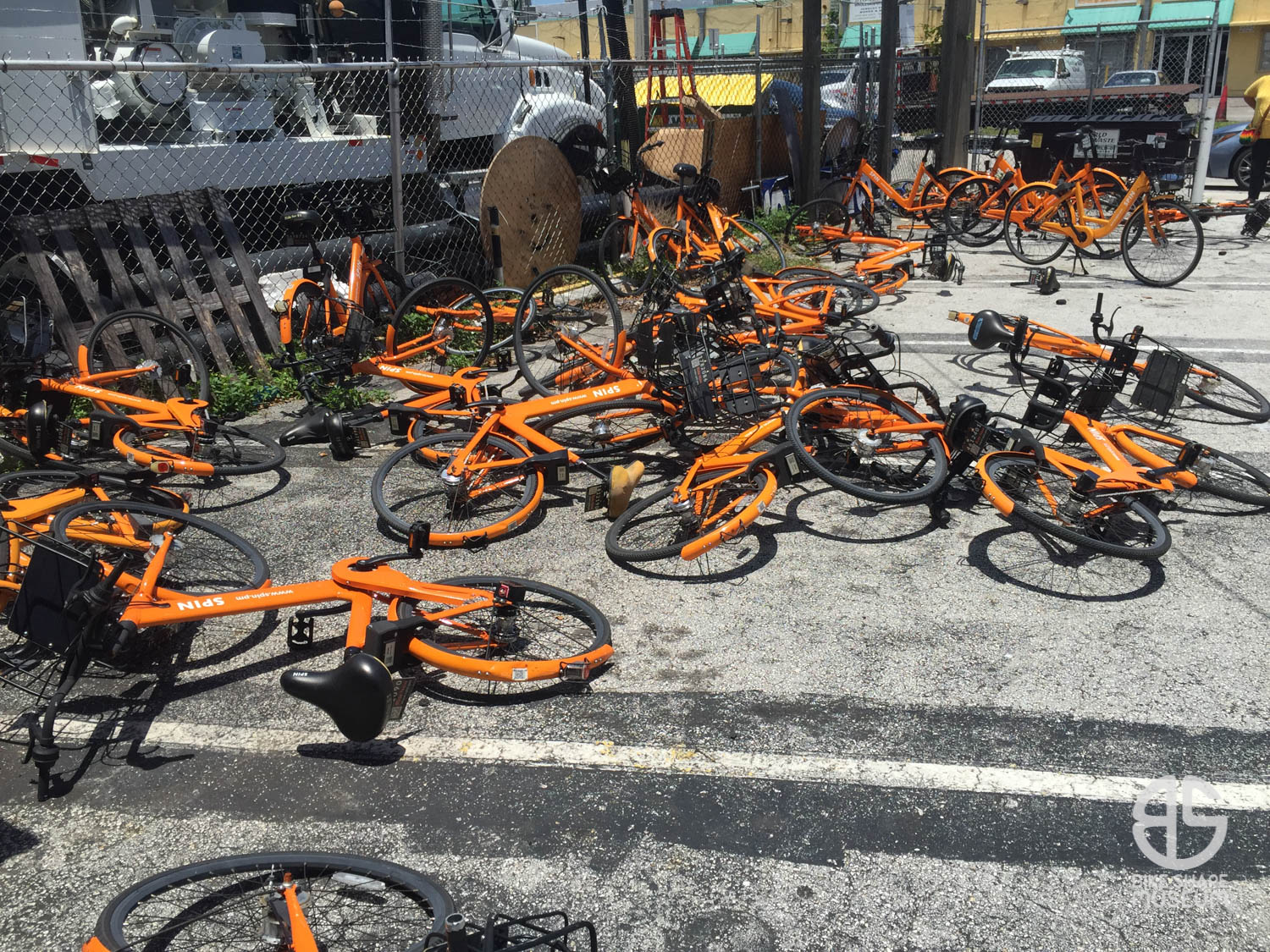
All the unlocked bikes were stolen. Though this sounds like a catastrophe – those bikes were the 38 that required massive repairs anyway! So, in an odd twist of fate, even this seemed to work out. We don’t condone bike theft, but if someone needed a bike that bad, we hope that it is keeping them alive and well.
Even then, I recruited Don Lambert to help out, social distanced our workstations, put on a mask and gloves, grabbed some Lysol and wipes, and we figured out how to piece together another 30 bikes for Cynthia & Co!
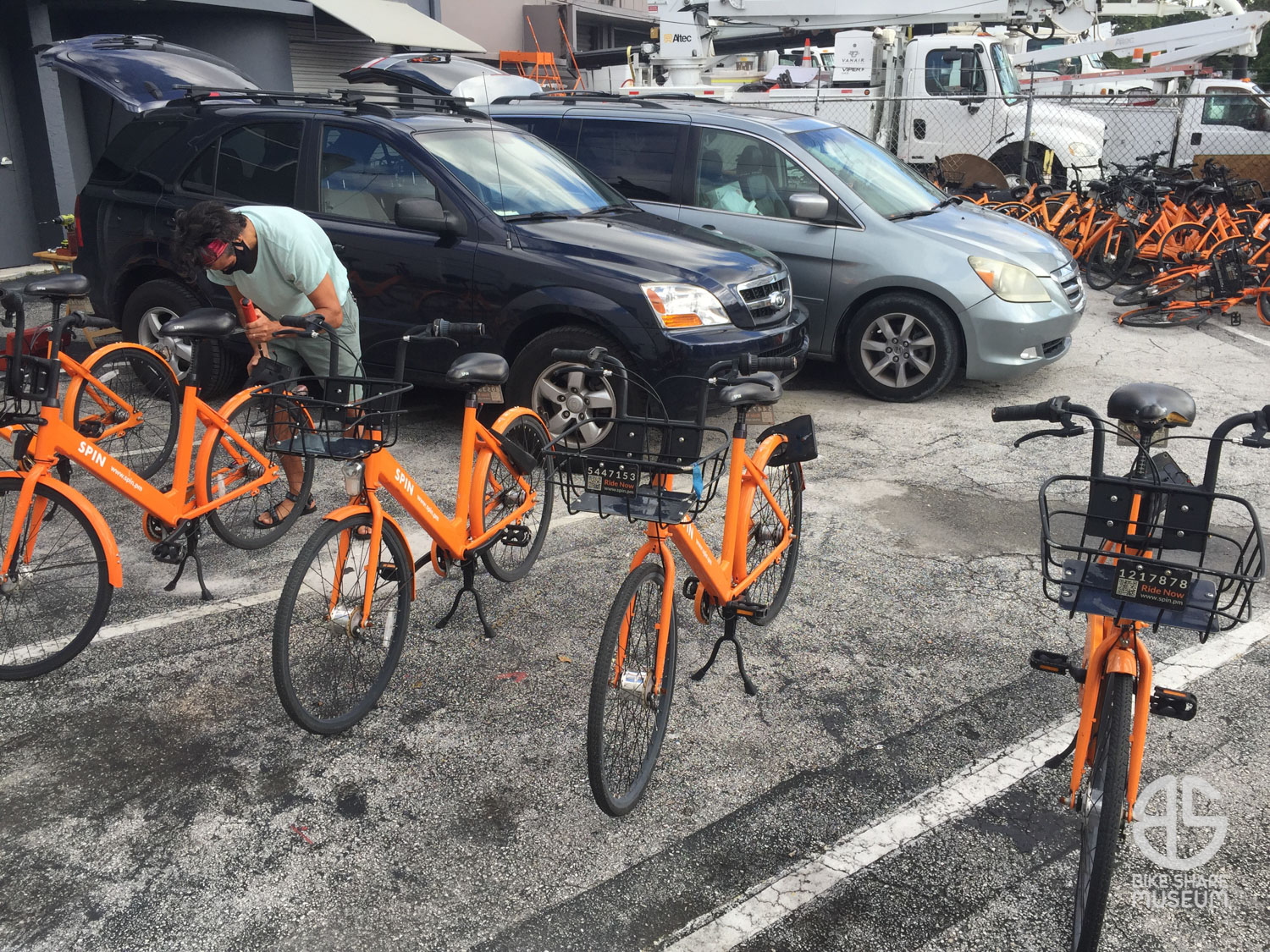
And that, my friends, is the story of the #SpinBikeProject. I truly lost count somewhere, but it doesn’t really matter. Fact is, there’s something about a bicycle that puts a smile on the face of anyone who receives one – and not once did we run into someone who didn’t want one.
